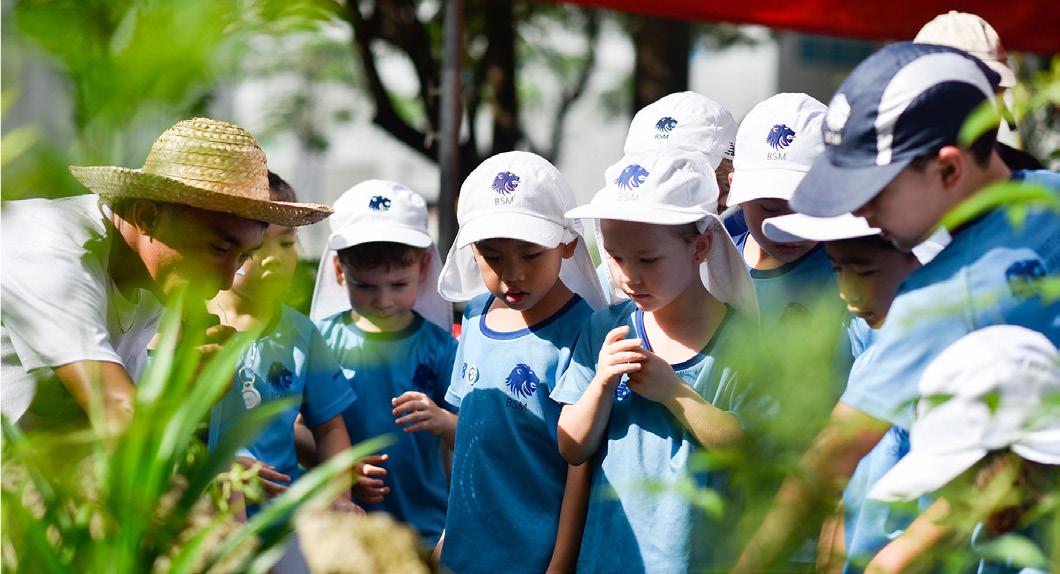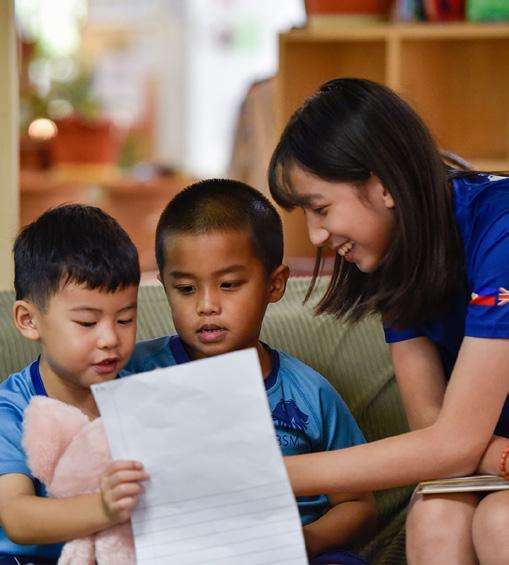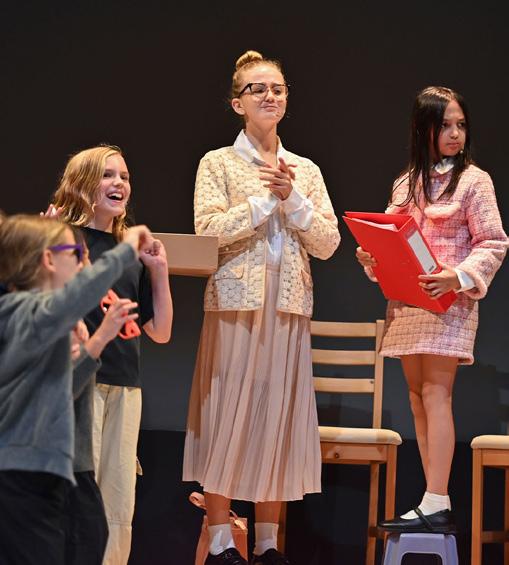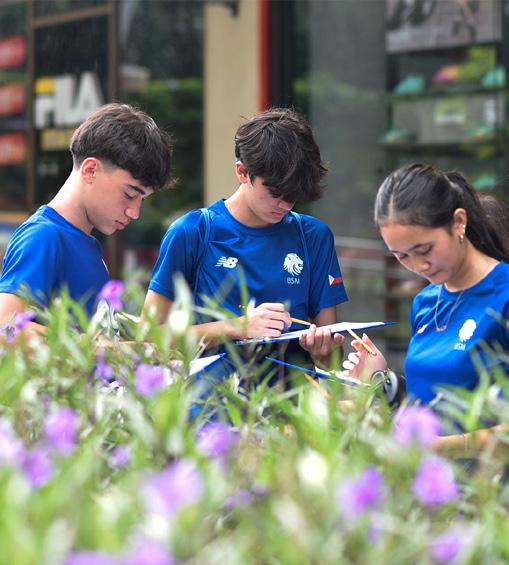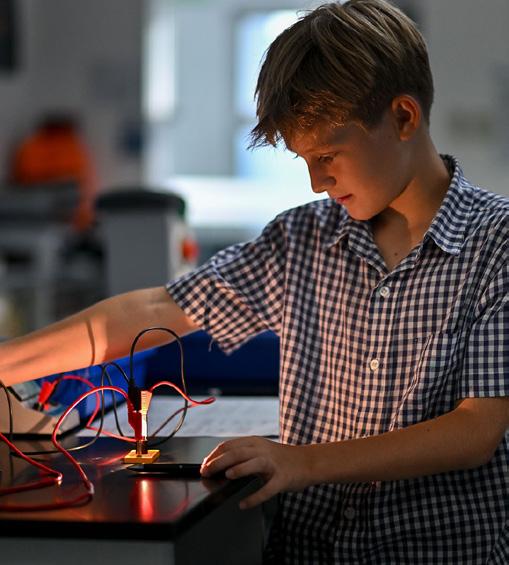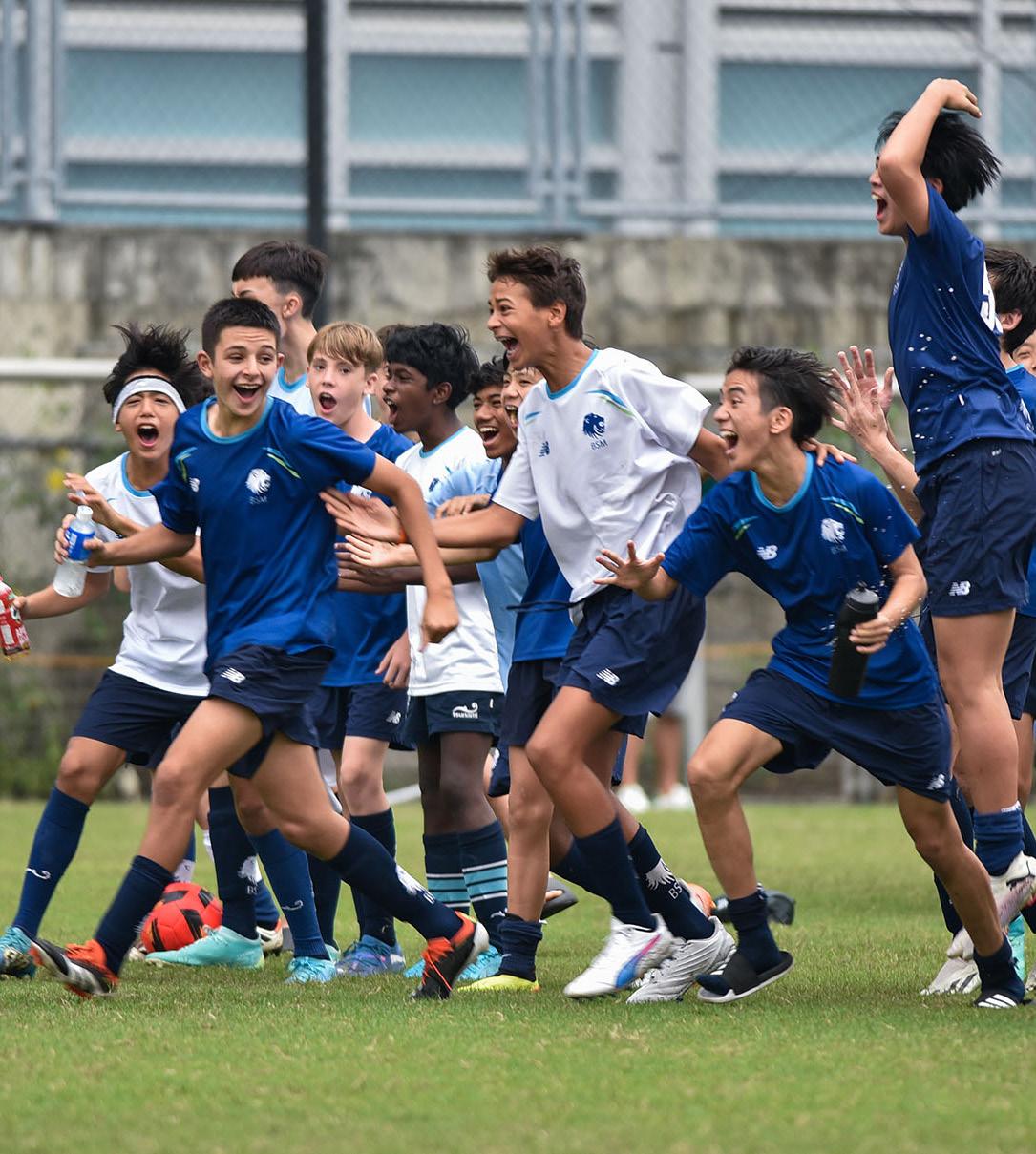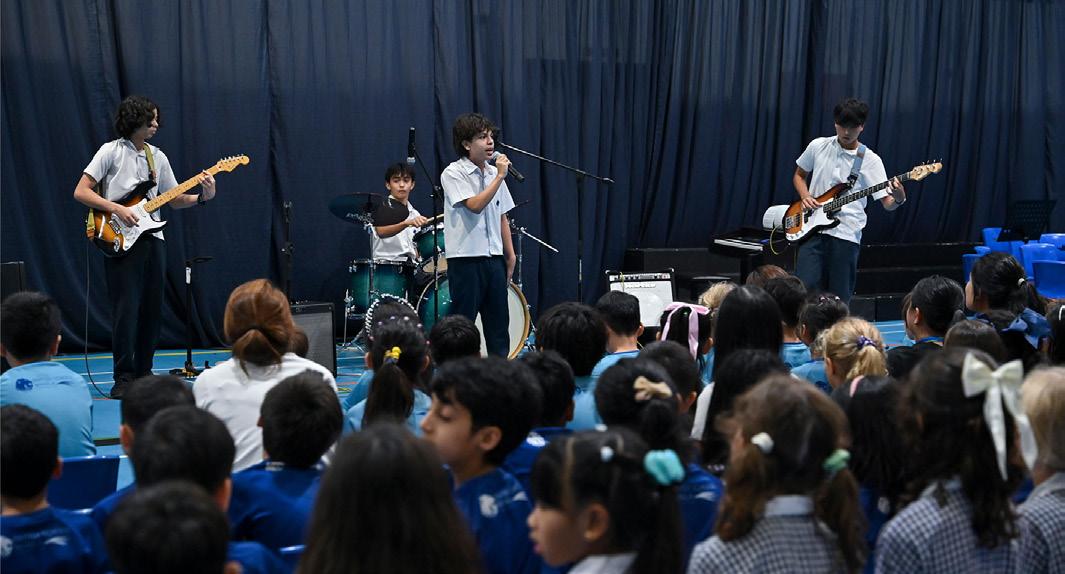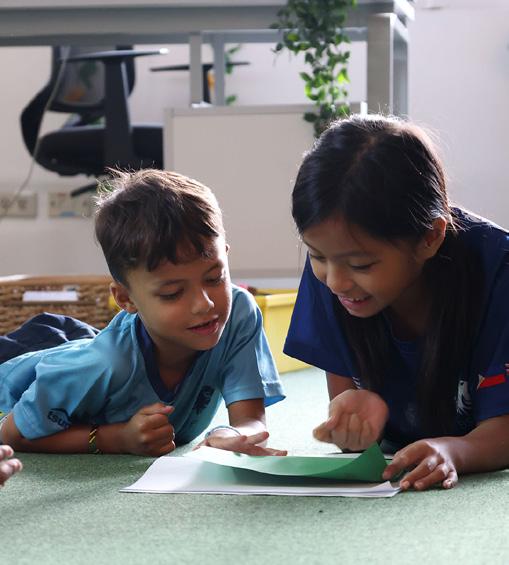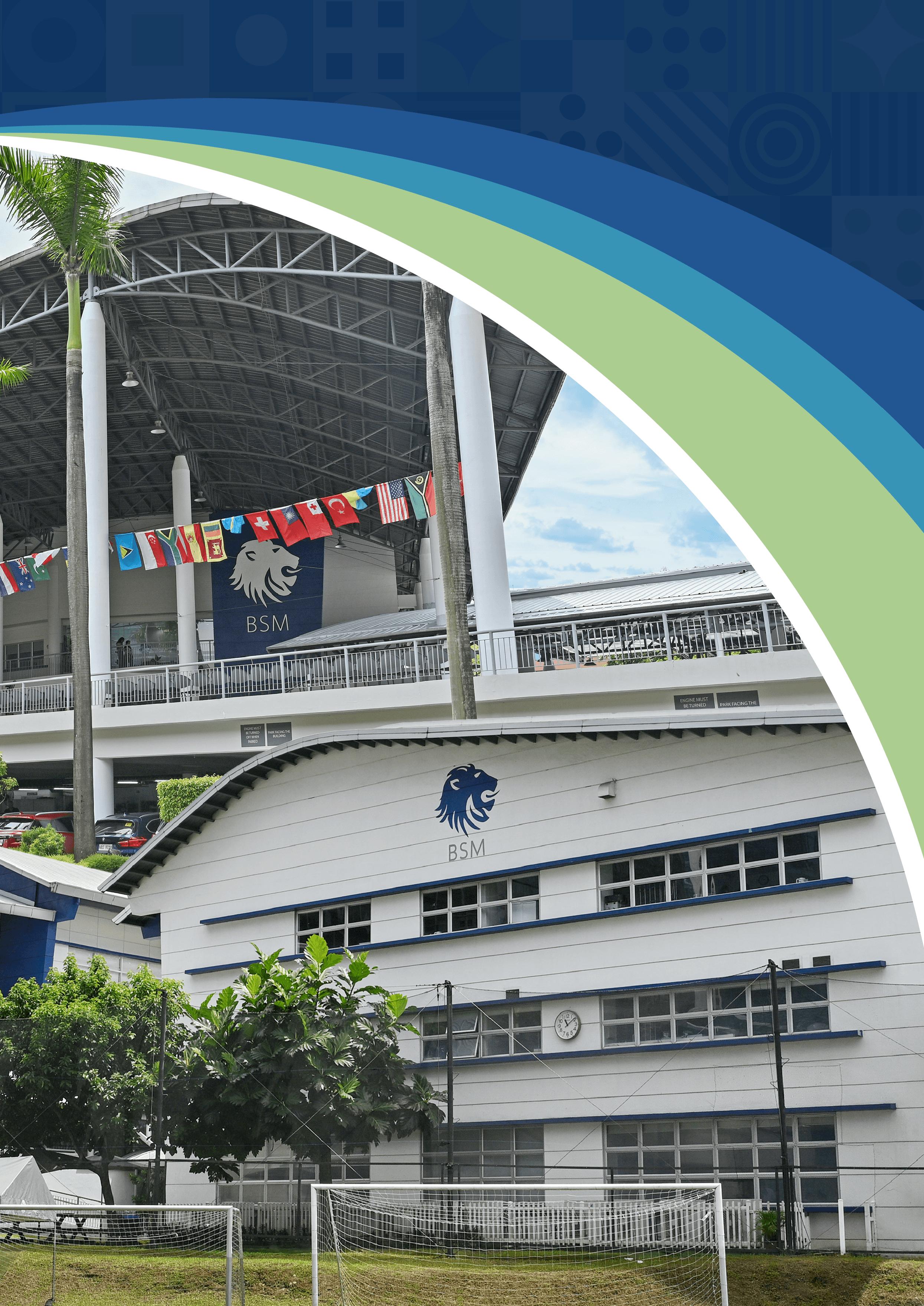

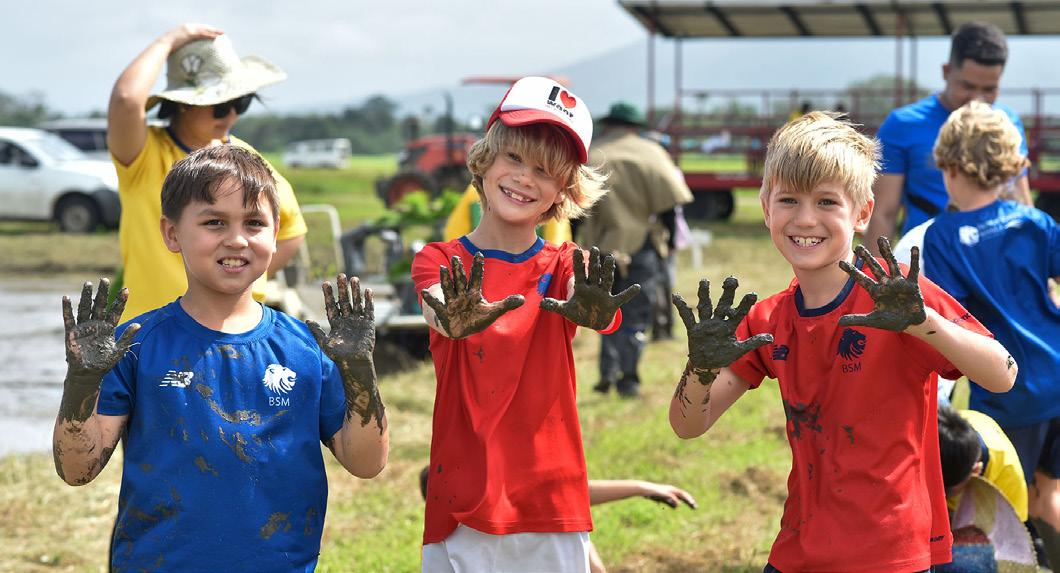
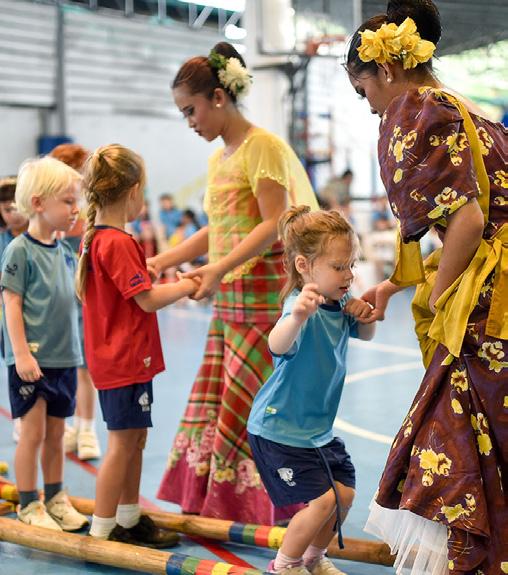
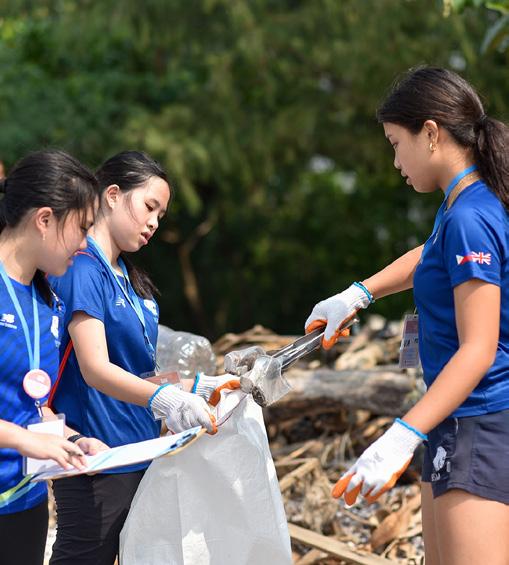
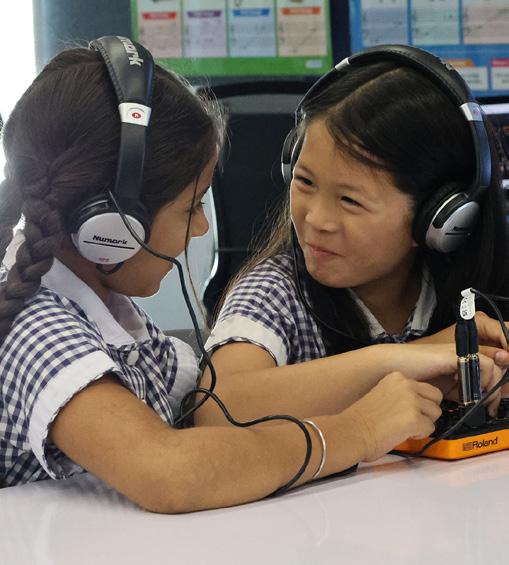
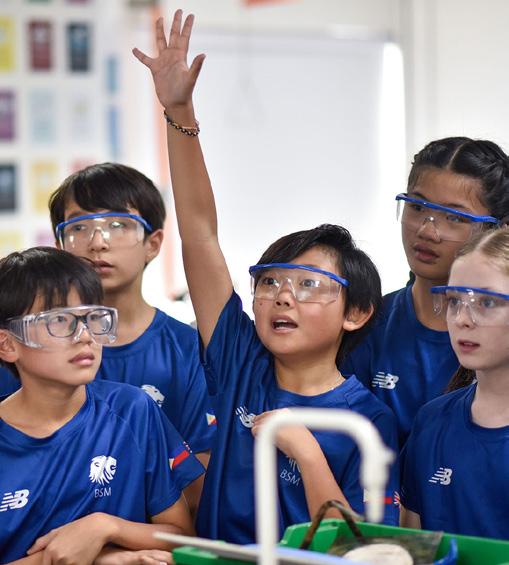
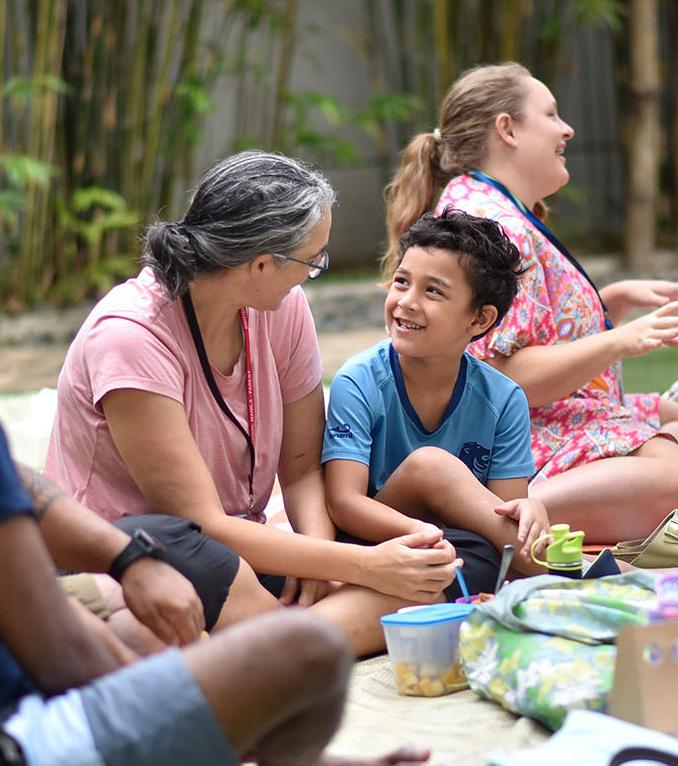

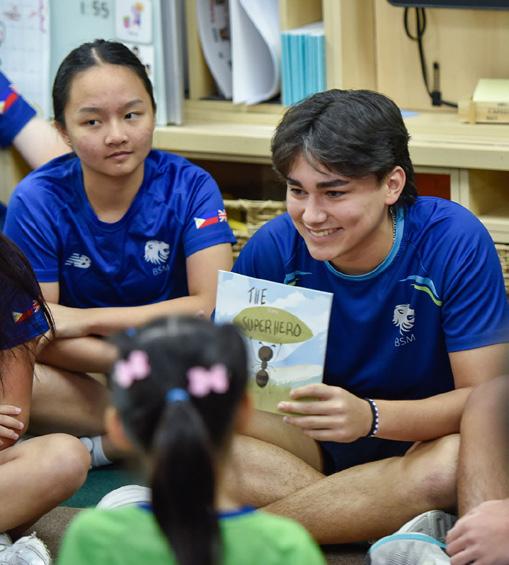
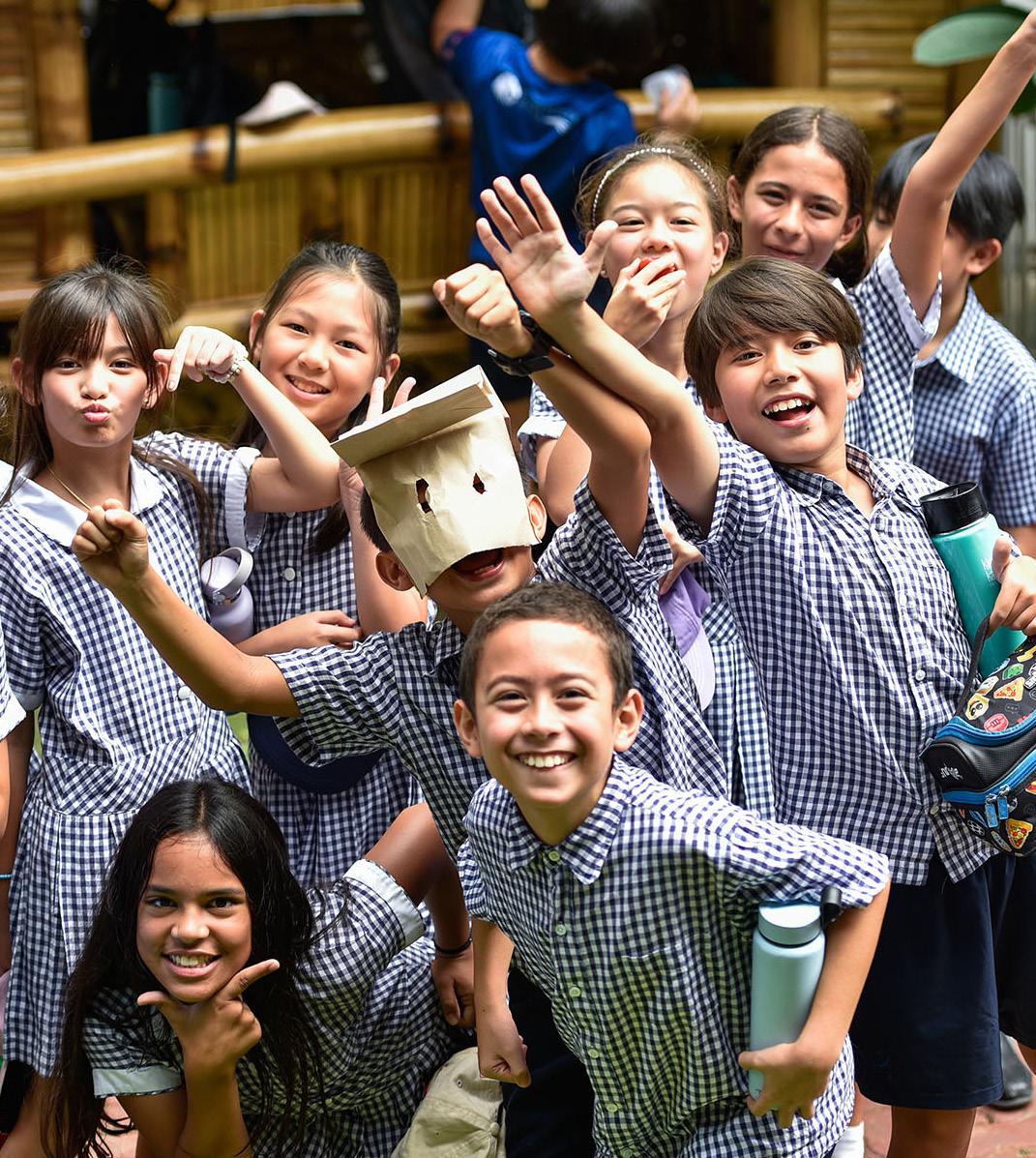
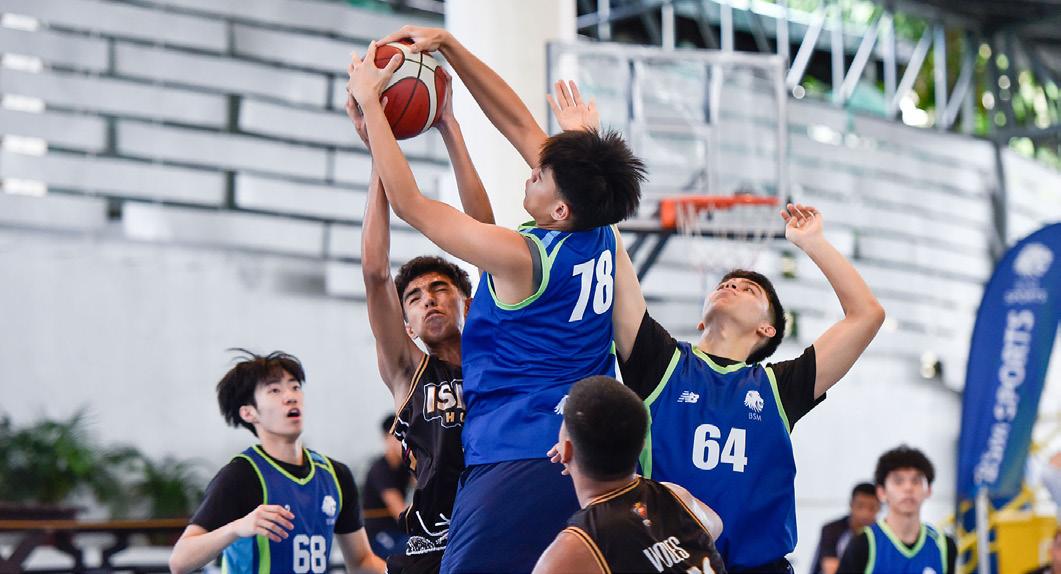
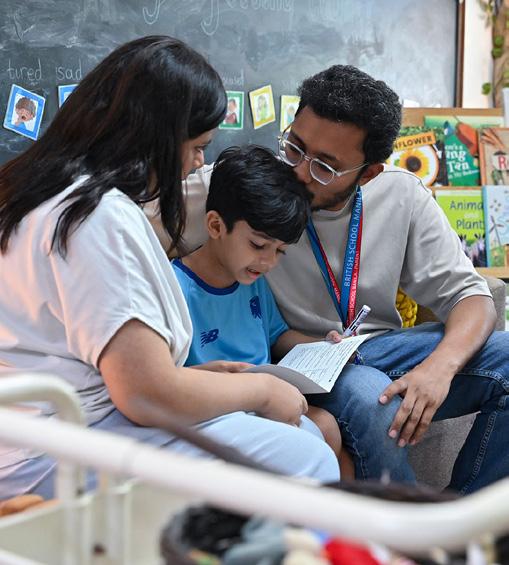














The British School Manila (BSM) provides an outstanding holistic British international education, empowering students to flourish as global citizens with the skills, understanding and values, to make a positive contribution to our world.
At BSM we commit to fostering a friendly family atmosphere that meets the needs of all our children and creates a true sense of belonging for all BSM community members.
Our students flourish by being:
• happy, healthy and capable of managing their own well-being
• reflective, self-assessing and proactive in driving their own learning
• resilient in adversity
• confident in expressing themselves
• Global Citizenship
• Teaching and Learning
• Well-Being
• Respect
• Integrity
• Kindness
In fostering a true sense of belonging for all BSM community members, we commit to the following practices:
• Respect diverse experiences, to learn from them and develop our intercultural awareness
• Act with Integrity, promoting equitable practices, systems and structures to guide us
• Act with Kindness and advocate for and empower all members of our community
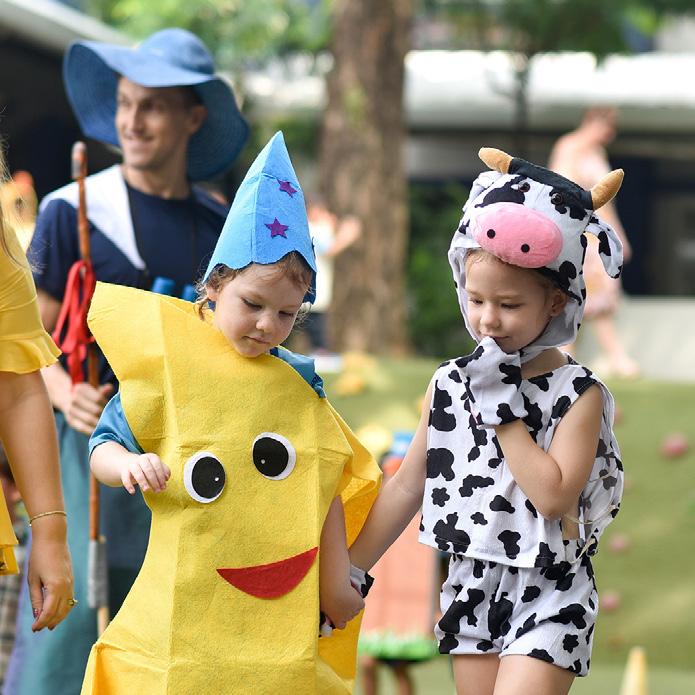

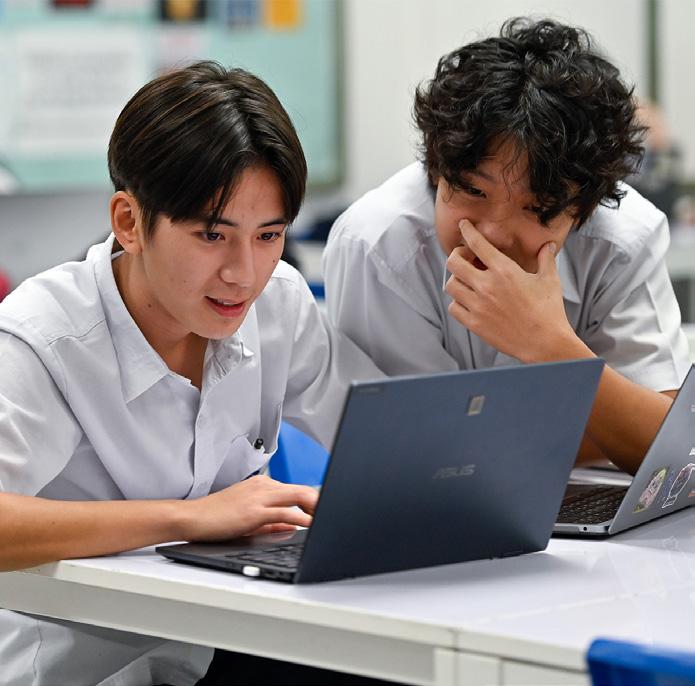
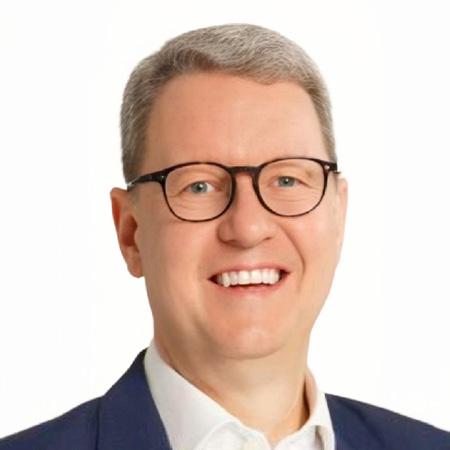
Tim Daniels Chairman of the Board of Governors
My congratulations to the entire BSM community on an exceptional school year 2024-2025. As highlighted in Mr van der Linde’s message, this was a landmark year, with strong results across many areas of the School: academics, university placements, sports, arts, service learning and sustainability initiatives. Holistic success is not easy to achieve and it should be a source of great pride that BSM is doing so well.
These achievements reflect not just the talent of our students, but also the dedication of our staff, the commitment of our leadership team and the support of our families. Thanks go to all!
BSM is regarded as a top-tier institution in the region, as well as a supportive home and community in the Philippines. With this in mind, we continue to think about how the school will continue its journey. The Board and leadership team have worked collaboratively on this in recent months, with considerable discussions to shape plans for our campus developments and strategic priorities for the coming years. It will be exciting to see how these will further enhance our teaching, learning and community life.
I would also like to extend my gratitude to my fellow Governors, whose time and expertise are generously given in service to the School, and to the many others, including our wonderful PTA, whose contributions strengthen our community. My thanks go to Juana Yupangco and Rico Gonzalez who recently ended their terms as Governors.
Thanks are also due to our Council of Trustees for their enduring support and oversight of the School.
Reading this Annual Report, there is much to celebrate and much to anticipate. With a clear strategic direction and a united community, I am confident that we will continue to go from strength to strength in the years ahead.
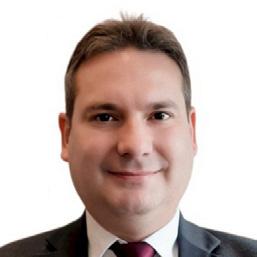
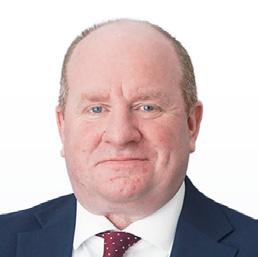

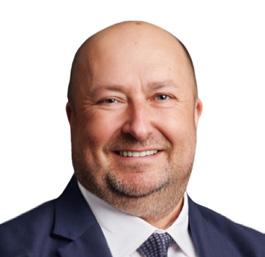
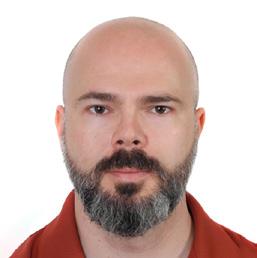
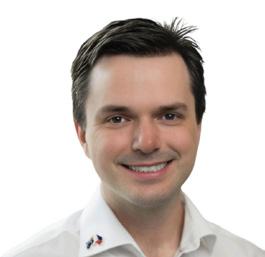
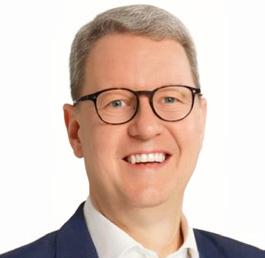


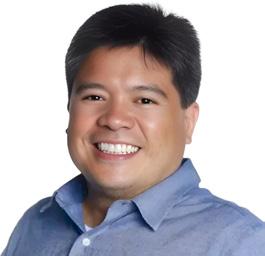
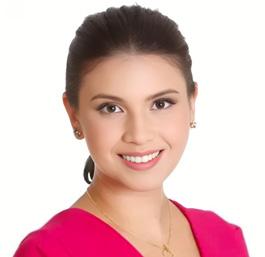

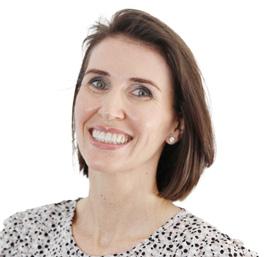

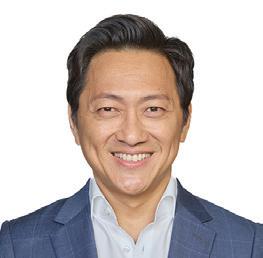
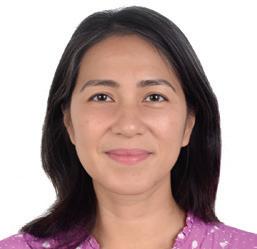






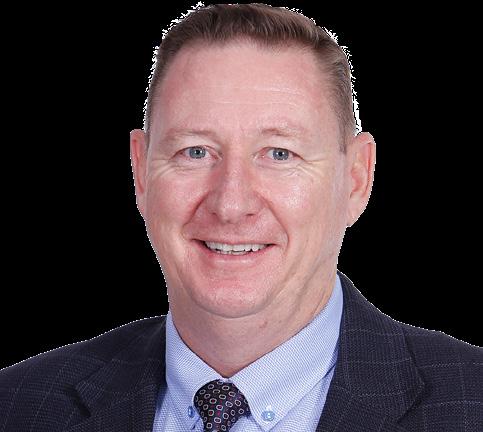
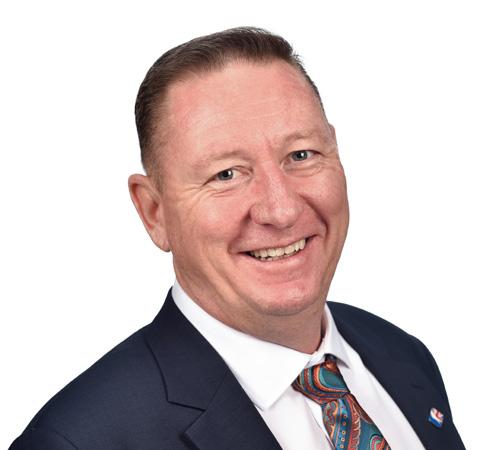
As we reflect back on School Year 2024-2025, it is clear that we have so much to celebrate as a community. Last year was truly a banner year, one that showcased wonderful achievements across examinations and higher education placements, successful sports, arts and service initiatives, and a strong commitment to sustainability projects. Each of these successes was not simply the result of individual determination, but also the collective strength and spirit of the BSM family: values-driven, committed, and united in purpose.
As always, this publication serves to share an account of the past year, offering insights into our operations, achievements, developments, and progress.
As can be seen in the pages of this report and at school every day, the British School Manila continues to grow and evolve and our new campus developments are tangible, visible reminders of our shared ambition and vision for the future.
Elsewhere in this report is reference to the robust and diligent process we have gone through in structuring a strategic vision for the next few years. What gives these priorities for the coming years life, purpose, and meaning are the people who bring them alive every day. At the heart of everything we do are our students, and every improvement we make is driven by a single aim: to help them flourish.
The lifeblood of our community lies in its people. Our passionate teachers bring care, creativity, and energy into every classroom. Our support teams work tirelessly, often behind the scenes, ensuring that daily life at BSM runs smoothly and with dedication. And our families, cheering from the sidelines, guiding from home, and contributing in countless ways, remain essential partners in all that we achieve.
I invite you to take a closer look at the many dimensions of this report, which highlights the breadth and depth of our work over the past year. Each school year is a celebration of our students, but this report also shines a light on the diverse operational efforts that together capture a full picture of the year just gone.
My hope is that these pages offer you a clear, transparent reflection of our school’s journey over the last twelve months. I look forward to continuing this path with you, always guided by our shared commitment to the growth and success of our remarkable BSM students.

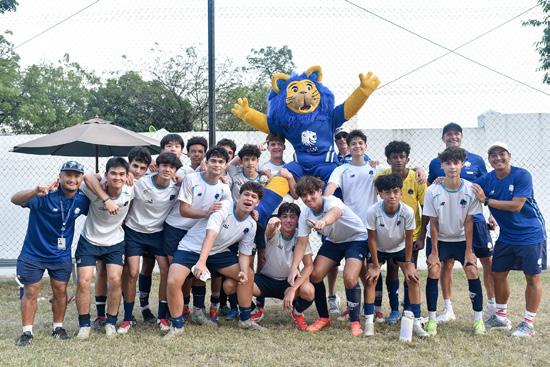

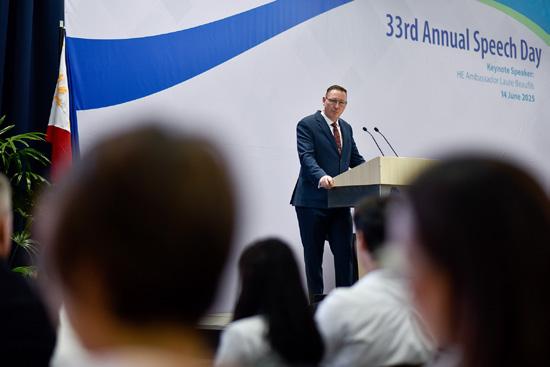
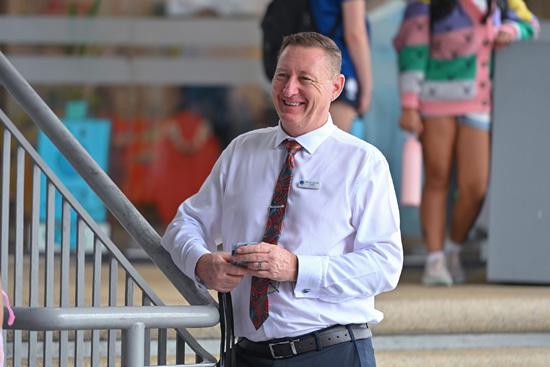
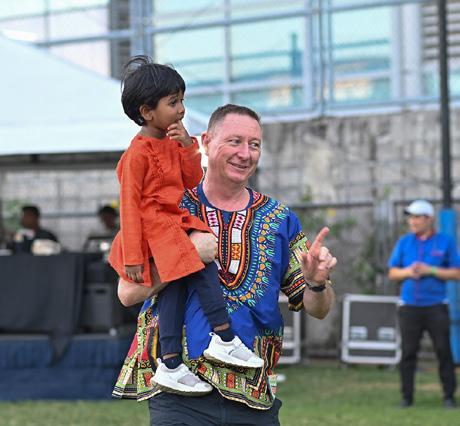
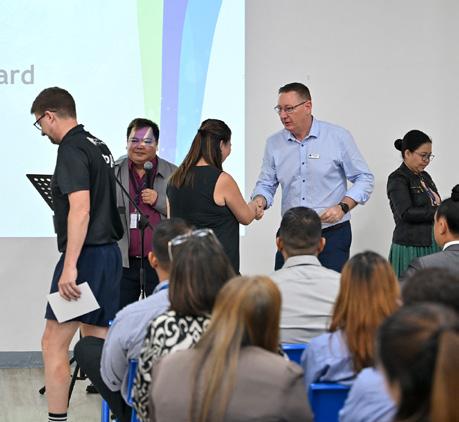
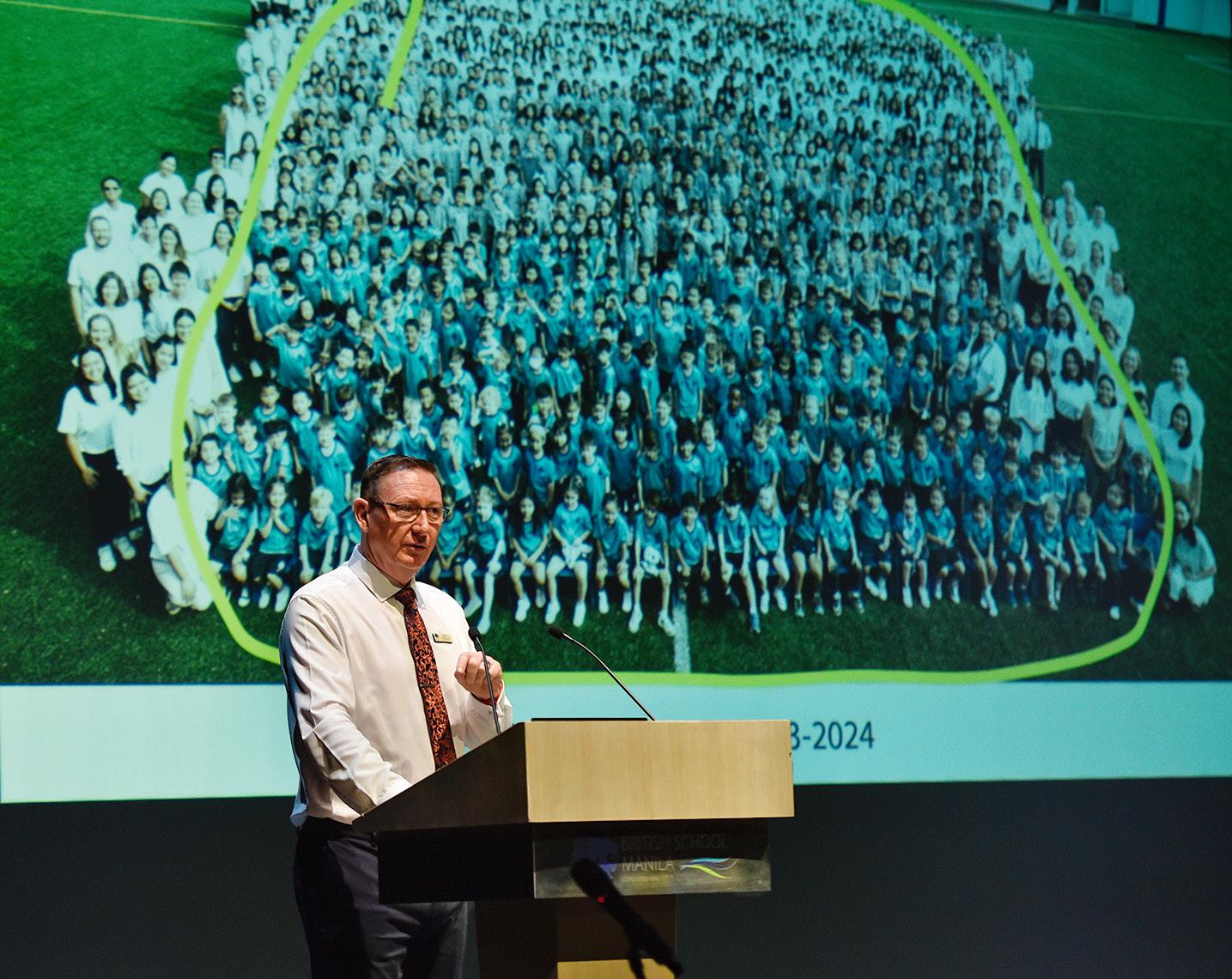
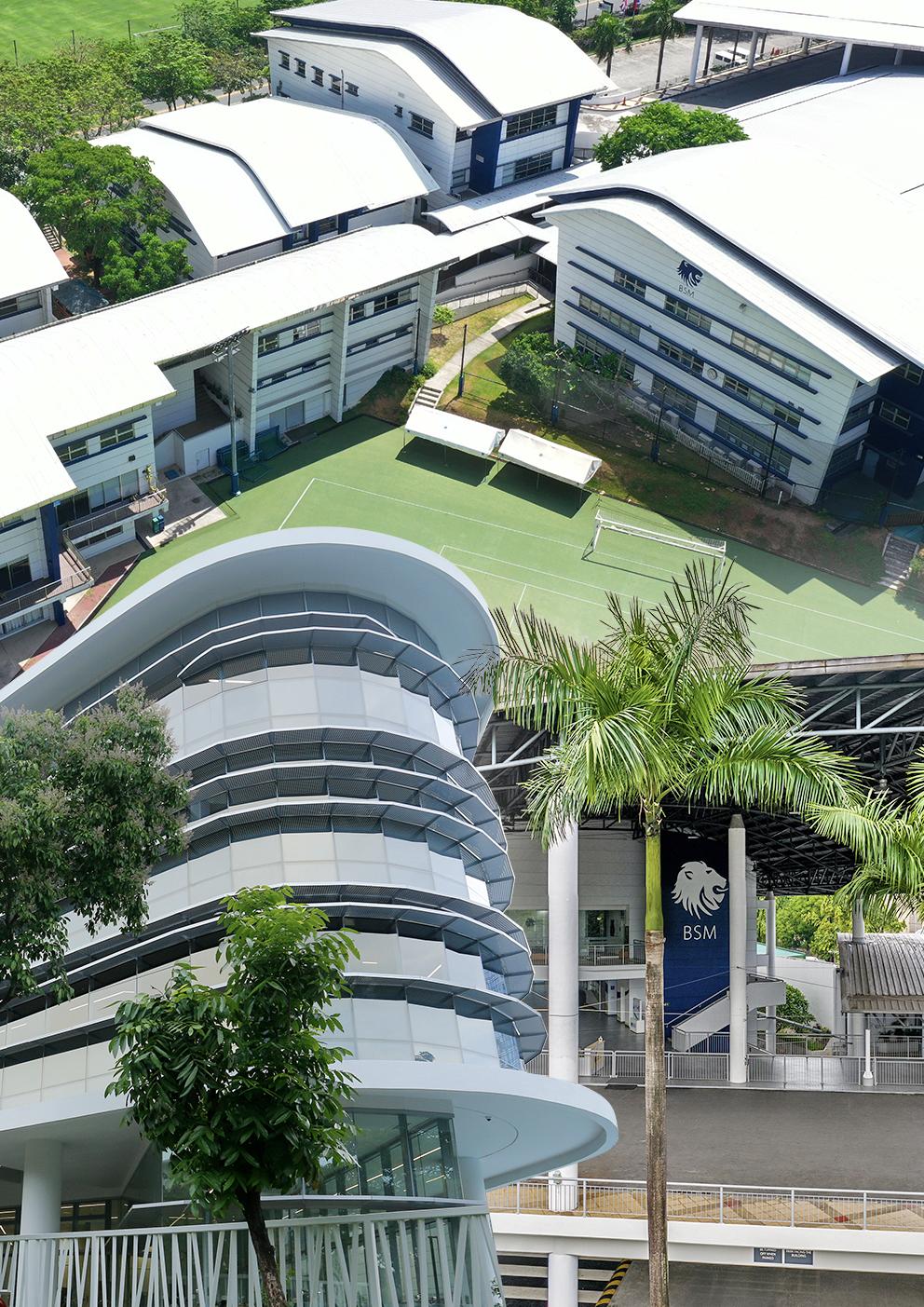
2021-2023
Purpose and Direction
Collate and Review Formal Feedback 2023-2024

October 2024 to February 2025
Input to Visioning on:
March 2025 to May 2025
Collate Feedback from:
• Educational Delivery
• Curriculum Development
• Pedagogy
• Assessment
• Student Support Services
• “Unwritten” curriculum
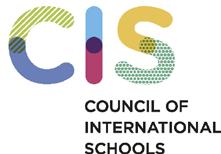


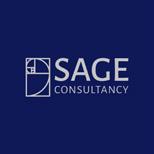
• Sta ng
• Development and Training
• Financial Sustainability
• Facilities and Infrastructure
• Resources
• Technology Integration
• Marketing and Admissions
• Governance
• Board of Governors
• School Leadership Team
• PLT and SLT
• Administrative and Ops Teams
• IT and Technology Team
• BSM Community
May 2025 to August 2025
De ne Actions and Review Loops, Finalise Strategic Vision Statement
• Curriculum Teamsaligning academic vision with strategic objectives
• Student Support Serviceswell-being, counselling, and inclusive learning strategies
• Board of Governors
• School Leadership Team
Community Engagement
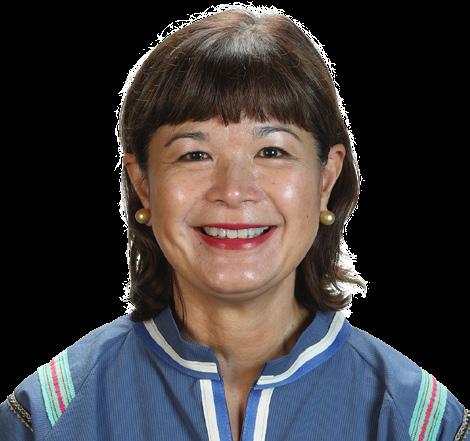
It is with great pride that I share our Annual Report for SY 2024-2025. As we reflect on the past twelve months, we celebrate the remarkable achievements we have made and our continued commitment to academic excellence and operational resilience.
The School consistently remains financially strong. Prudent and responsible management of our finances has enabled us to continue with our strategic investments in teaching resources, facilities, network infrastructure, and staff development, while ensuring the long-term financial sustainability of the school.
We surpassed our previous student enrolment levels this year with 978 students, representing 56 nationalities. Beyond the numbers, this growth reflects the strength of our diverse and inclusive community, which not only enriches our learning environment but also ensures that every student thrives in a multicultural community.
We successfully completed significant renovation work across the campus, with upgrades made in the Primary School cafeteria, Kalayaan Hall, various classrooms and learning spaces, common areas, and administrative offices. These improvements in our facilities ensure that our school environment supports our evolving needs and reflects who we are.
Our ongoing commitment to driving sustainable change has yielded tangible results. Our solar panels and campus-wide initiatives have further reduced our energy costs and lowered our carbon footprint. These measures not only reflect our integrated approach to environmental sustainability but are also a vital part of educating future global citizens.
We continue to collaborate with the Department of Education Schools Division Office of Taguig and Pateros. With our Scholarship Programme, to date, we have supported 55 passionate, resilient scholars. We held our first-ever annual Education Outreach Teachers’ Conference which brought together 125 educators from public schools, fostering an environment of shared learning and professional growth.
In recognition of all these accomplishments, I would like to express my heartfelt gratitude and appreciation to each and every one of you who have contributed to making this year a resounding success – our students who are the driving force behind everything we do, our teaching and support staff for their unwavering commitment, and our parents for their steadfast support in every step of our journey. Together, we can build a stronger community, shaping even greater achievements in the years to come.
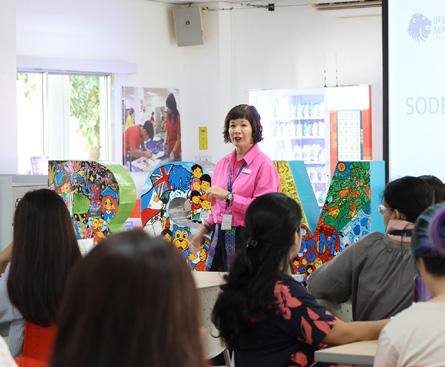
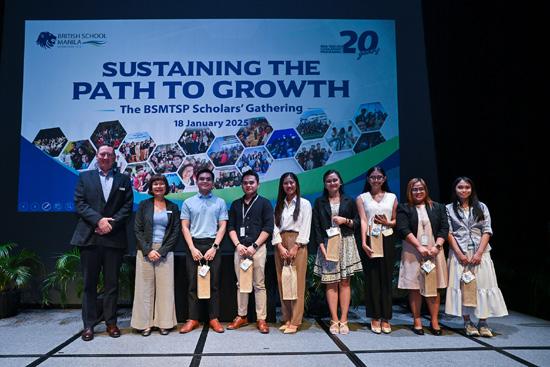
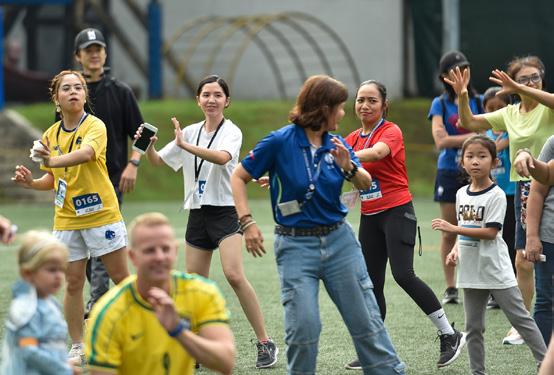

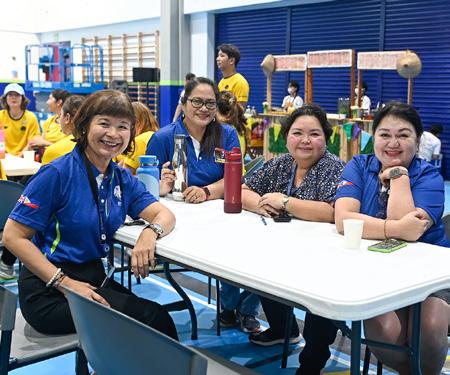
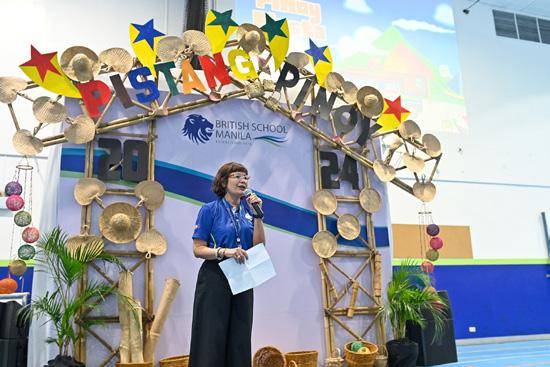
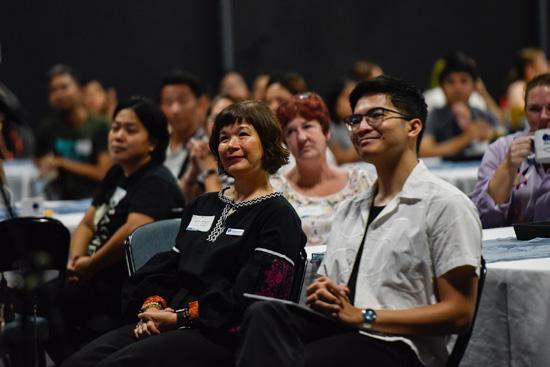
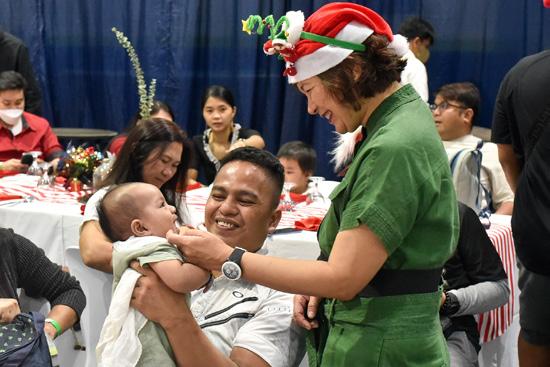


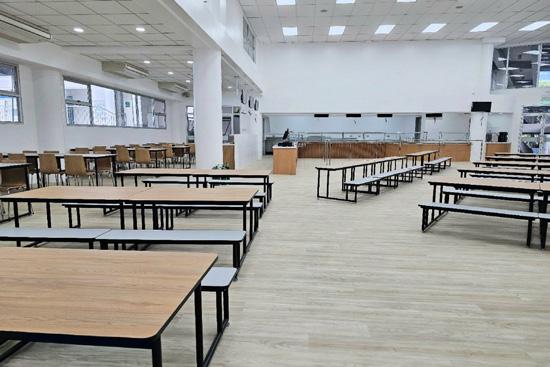
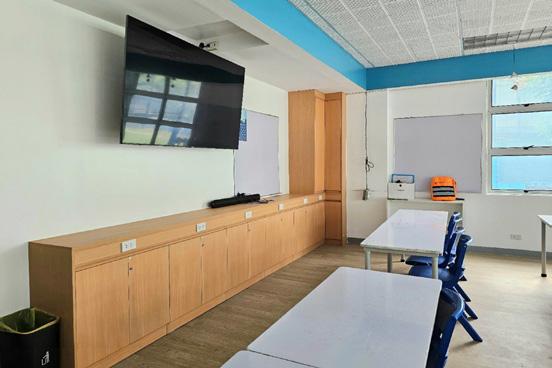
123,916 Savings in Kwh
1,497,261 Savings in Pesos
51,127kg CO2 Saved

4,451 Total Number of Lights 1,526 Trees Planted = 50 trees
103,095 Savings in Kwh
1,241,260 Savings in Pesos
40,413kg CO2 Saved
1,206 Trees Planted = 50 trees
34,100kg Solid Waste Collected
3,461kg Solid Waste Sold to Junk Shops



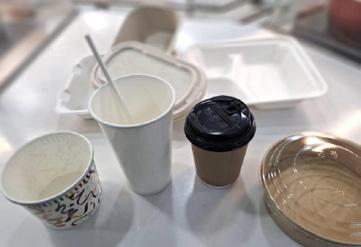
By skipping meat every Monday from March to June 2025, we saved 160 kg of meat which is equivalent to 915 kg CO2e
90% of the packaging used are made from sustainable materials.
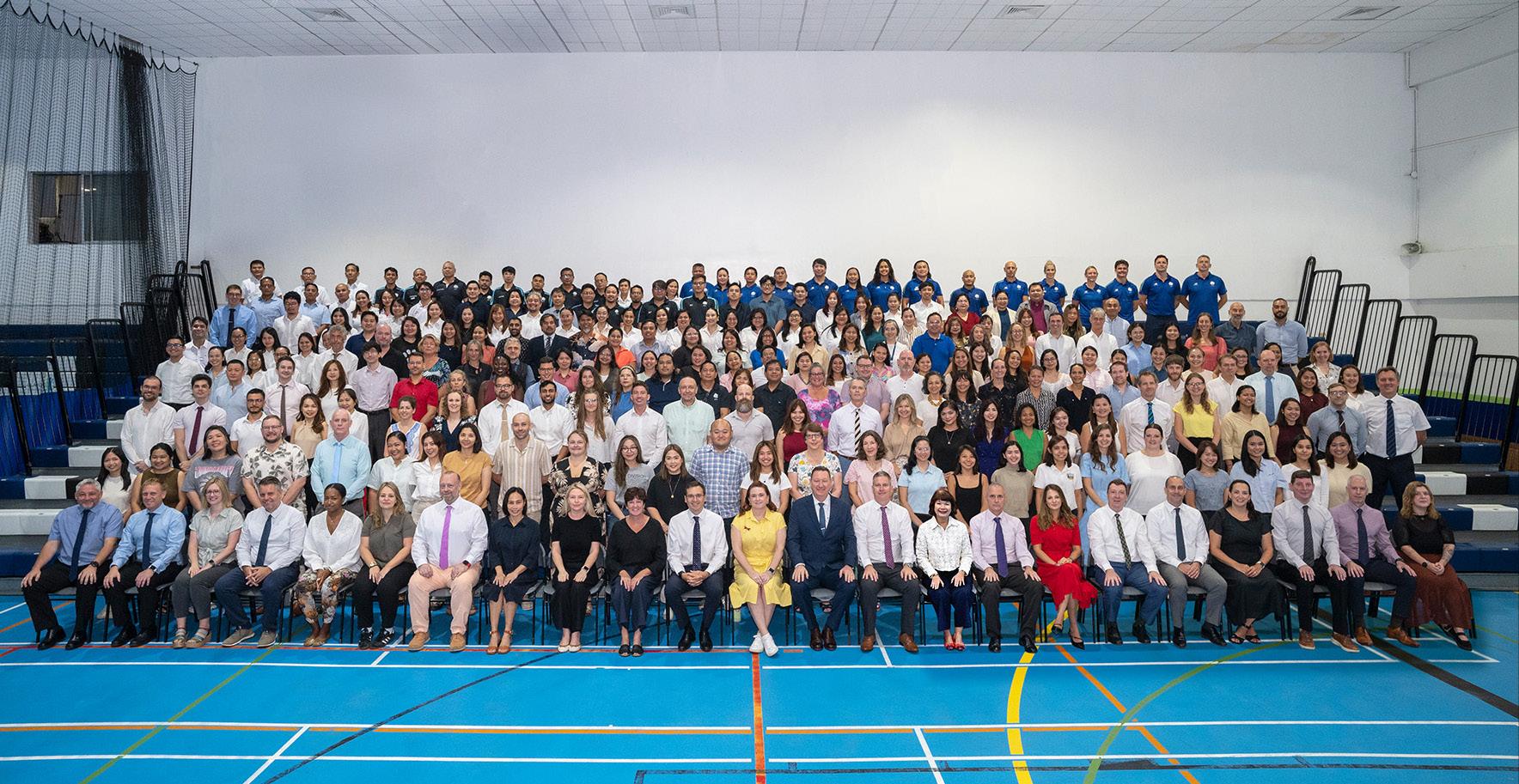
As a non-profit educational establishment, BSM does not seek to make a profit nor generate a dividend for any shareholders. The School’s sole source of financing is the various fees it receives from its families. BSM has maintained conservative financial practices that have ensured it covers its costs, maintains a safe operating cash buffer and is debt free. The figures below were presented to the Board of Governors for the year ending 31 July 20251. The School remains a financially secure and ongoing entity.
Capital Expenditures
Strategic Growth spent for:
y 2015-2016 - Anilao Building renovation (P17.2M), Science classrooms (P15.6M), Offices (P2.7M), KS2 Playground (P1.9M)
y 2016-2017 to 2018-2019 - Creative Arts Centre (P541.9M), Playground Area
y 2018-2019 - Pool retiling (P12.4M), Floor retiling, Ramp, Space Planning
y 2019-2020 - Creative Arts Centre (P49.7M), Floor retiling, Toilet renovation
y 2021-2022 - Full payment Creative Arts Centre (P18.2M)
y 2022-2023 - Don Jones Field Rehabilitation (P24.8M), Toilet renovation (P3.4M)
y 2023-2024 - Clinic Renovation (P12.0M), Solar Panels (P5.4M), Operations Office (P3.7M), School Refurbishment, Renovation of Changing Rooms, LRC Ceiling, Uniform Shop, Procurement Office
y 2024-2025 - Capital Development (P47.9M) - Primary and Senior FoodiE Bistro, Rizal Hallway and Classrooms, Renovation of Changing Rooms, Rizal Prep Room, Kalayaan Hall, Toilets Renovation, Anilao Flooring Replacements, El Nido Building Hallway and ICT Service Area
includes:
y Capital Development (P62.8M) - Renovation of the Palawan Playground, Primary Buildings Flooring replacements, Technology Space Renovation (Phase 2), Nursery, PE and El Nido Student Toilets, Student Support Services (SSS) Upgrade, Canopy (Clinic and LRC), Renovation of Adult/Staff Changing Rooms (Main Hall and Fiesta Building Basement), Contractors’ Changing Rooms
y Year 5 of 5-year Network
1
Enrolment by Year Level as of June 2025

At BSM we adopt the Positive Education approach. Positive Psychology engages in the scientific exploration of human wellness and optimal functioning.
Our bespoke Well-Being Framework promotes a whole-school approach to fostering positive physical and mental health. The framework sets out five key areas of well-being that we aspire to for all of our students.
• Self Acceptance
• An Active and Balanced Lifestyle
• An Ability to Self-regulate
• A Sense of Belonging
• A Capacity for Growth and Resilience
The academic year 2024-2025 saw the growth of the school’s dedicated ‘Flourish Festival’.
Flourish Festival serves as a celebration of the school’s Well-being Framework. The event opened with community reflections on resilience and gratitude. Each day recognised the positive emotions that can be experienced through music with a student-led radio initiative.




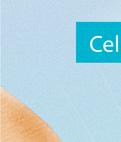
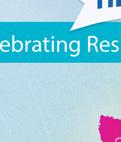

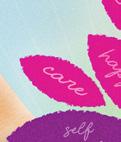



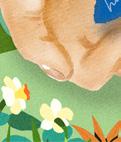

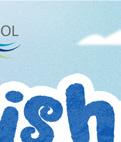

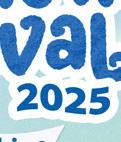
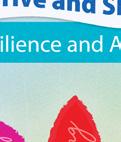

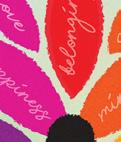

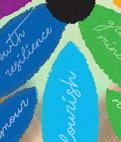

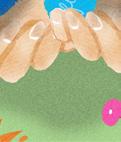
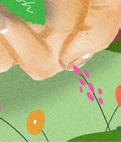





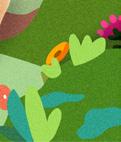
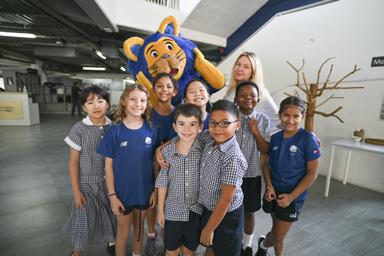
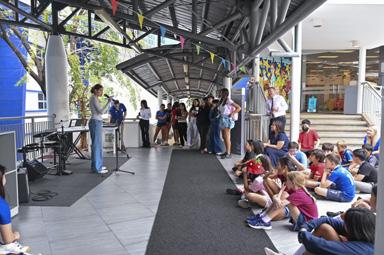
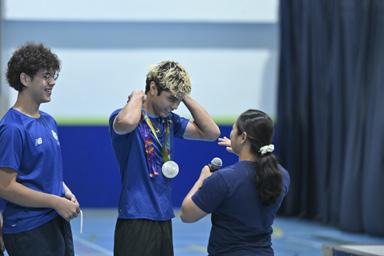


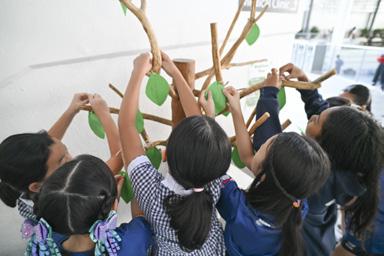
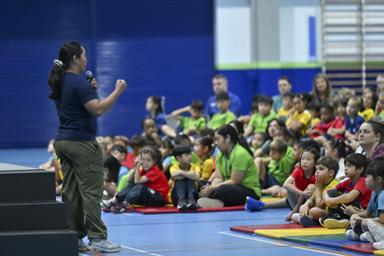
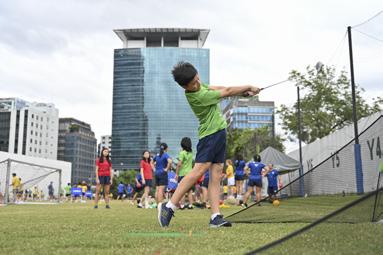

Specialised workshops engaged students on topics related to mental health whilst parents came together to learn more about ‘Raising Resilient Children’. Staff had an opportunity to attend a seminar with Tanya Gonzalez, guest speaker from Mind You, BSM’s external staff wellness partners.
The highlight came on Spirit Day, when Olympic gold medalist Hidilyn Diaz inspired the community with her story of perseverance. An uplifting experience that will stay with students for many years to come.
The event closed with a selection of student musical performances and a community Breakfast Run - emphasising the importance of physical health and camaraderie in well-being.

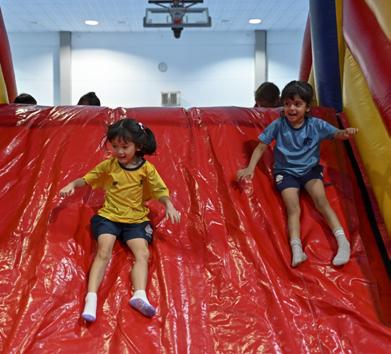
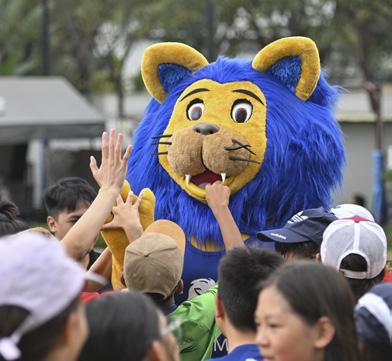
Most significantly, Flourish Festival builds on the high quality well-being lessons that students engage with throughout the academic year. At BSM we are proud to be able offer students access to the Positive Education Enhanced Curriculum, recognised as the gold standard in well-being education.
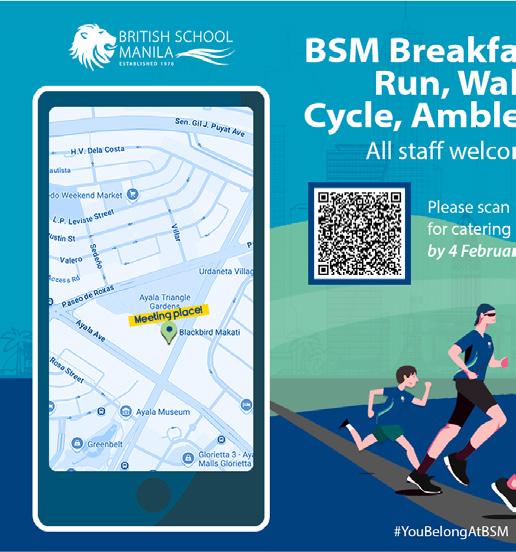
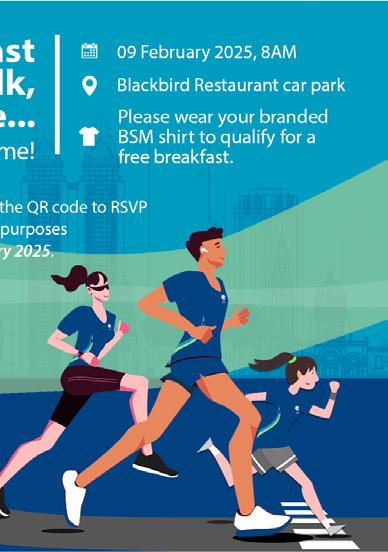
In Primary at BSM, we broadly follow the National Curriculum of England to support our provision in Reading, Writing, Maths and Science. However, there are some very unique aspects to our curriculum and provision within the primary section. Areas of difference which stand us apart is the intentional and focussed curriculum work and experiences provided around well-being and global citizenship, as well as our approach to learning in Key Stage 1 which offers a play curriculum primarily taught through play pedagogies.
Well-Being is a curriculum subject at BSM and as such is allocated direct teaching time each day. At BSM, we have developed a bespoke Well-Being Framework and also use the Positive Education Enhanced Curriculum. This curriculum is based on the science of well-being, underpinned by research. Students are taught mindfulness techniques, how to live a healthy lifestyle, to take risks and challenge themselves. They also consider their character strengths and lesser strengths. To complement the Well-Being Framework, we also use the Learning Power Approach from Year 1 onwards (using characters for these in younger classes) which help students to think practically about themselves and the skills they need to be effective learners.
Our Global Citizenship Curriculum has been internally designed and is split into strands: Connecting with Communities, Connecting with Nature, and Sense of Self.
Within the Connecting with Communities and Nature strands the focus is on sustainability and regeneration. All of our year groups have access to outdoor planting and growing areas. Learning through real life contexts is important and as such, each primary class is linked with a service learning partner. We have established relationships with Waves for Water, Upskills Foundation, Rise Against Hunger and Tahanan Orphanage.
Within the Sense of Self strand the focus is on intercultural understanding and learning about diversity. Our drive towards diversity, equity, inclusion and belonging is further supported by our Autobiographical Approach. This is a journey of intercultural understanding, with students recognising and respecting the culture of our diverse community. All of our English work in the first 2 weeks of the school year focusses on this aspect and is part of building relationships so that we better understand each other as the year progresses.
In EYFS and KS1 we nurture student’s curiosity and joy of learning to lay foundations which will continue throughout their education. We recognise that the best way to do this is to offer high quality opportunities for learning through play; following student’s interests and facilitating for them in opportunities to become collaborators, explorers, problem solvers, and investigators. Our classroom provision offers a play based curriculum taught through play pedagogies, until the end of Year 2.
In EYFS, the UK Development Matters’ document is used to support the design of the curriculum and professional judgements.
In Year 1 and Year 2, we have developed our own curriculum framework designed using the 7 areas of learning within the UK EYFS Development Matters Framework. There are no formal assessments although staff use the UK Phonics screening materials to support judgements in this area.
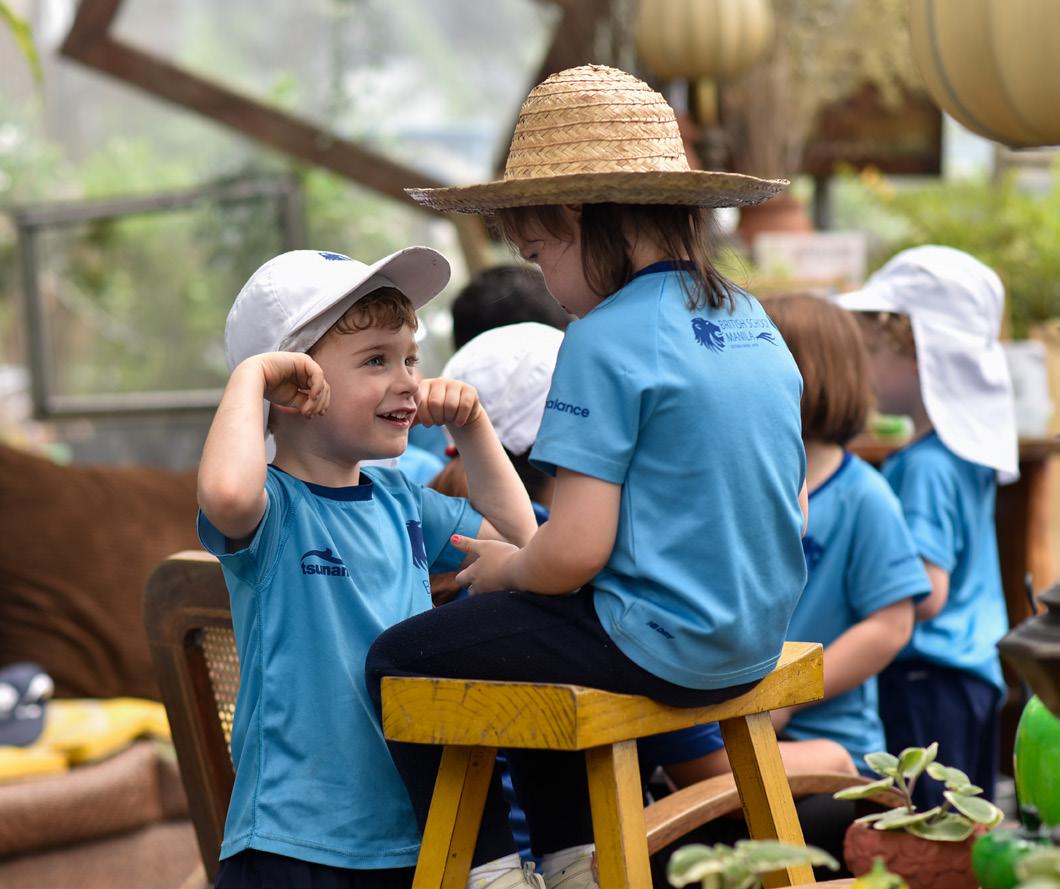
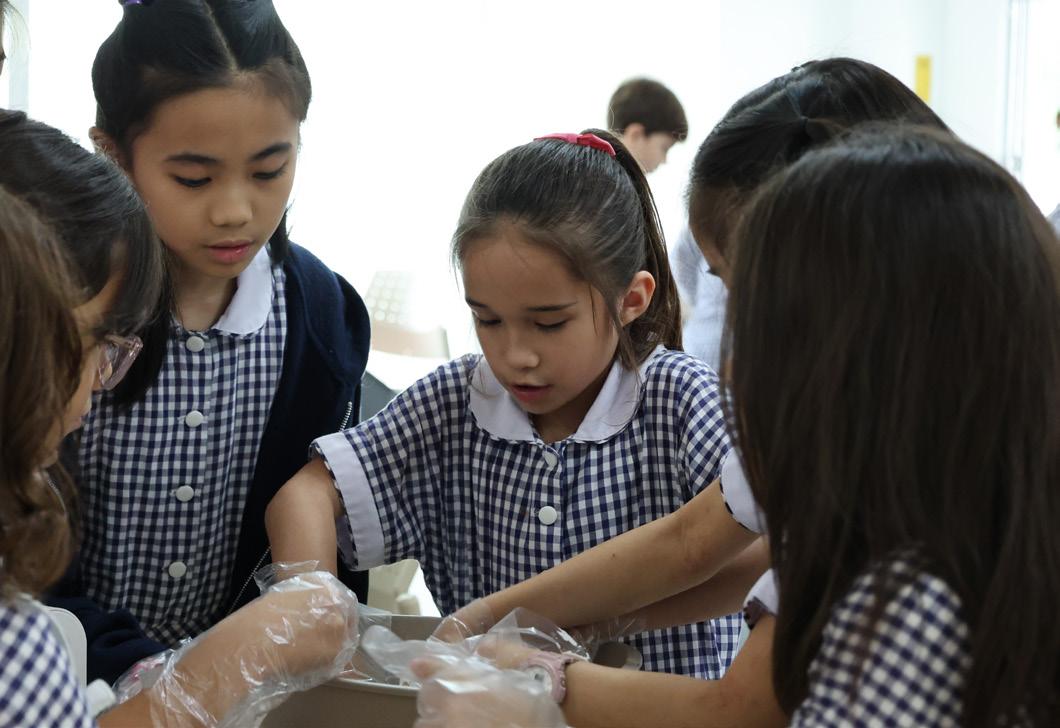
To support our Maths and Science learning we have developed maths and science ‘mantras’ where making mistakes, conscientious completion over speed, and asking questions are celebrated. Internal assessments and standardised tools are used to track progress and look for points of strength or areas which students may need support in.
Throughout Key Stage 2, we shift to teaching through concepts in order that students can connect their learning. The ‘Learning That Transfers’ and ‘Concept Based Learning’ approach continue through into Senior school.
All students in Primary swim weekly from Nursery through to Year 6. They are also are timetabled each week for a further two sessions of taught PE. This reflects the high priority placed on physical health and well-being.
Students begin to experience Mandarin teaching from Year 2 and are introduced to Spanish and French in Year 5. Other specialist teacher taught areas are: Library, Information Communication (IT), Drama (Year 3 upwards) and Art.
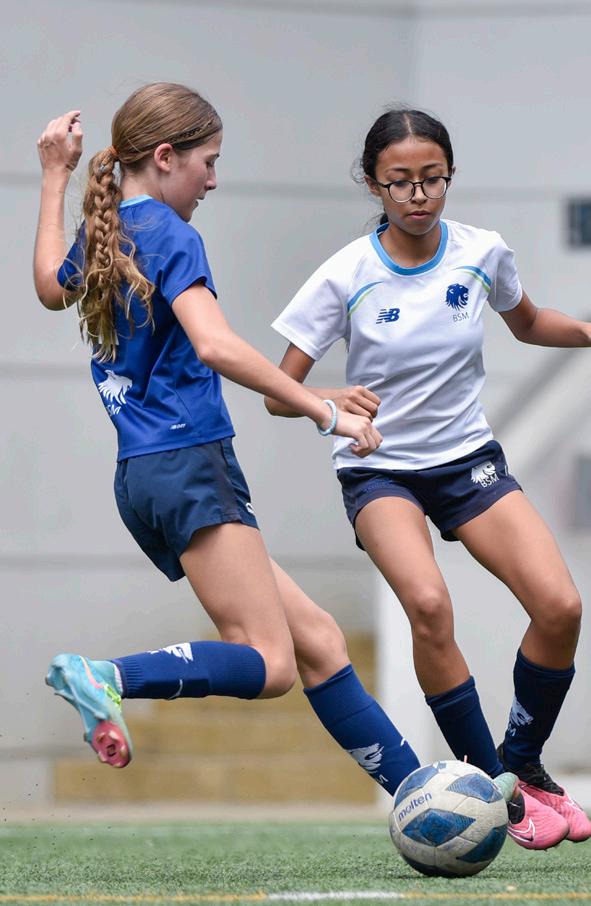
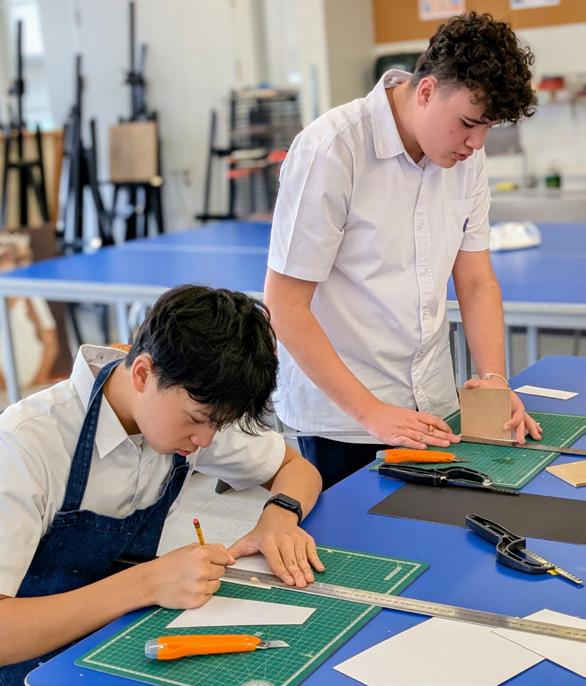
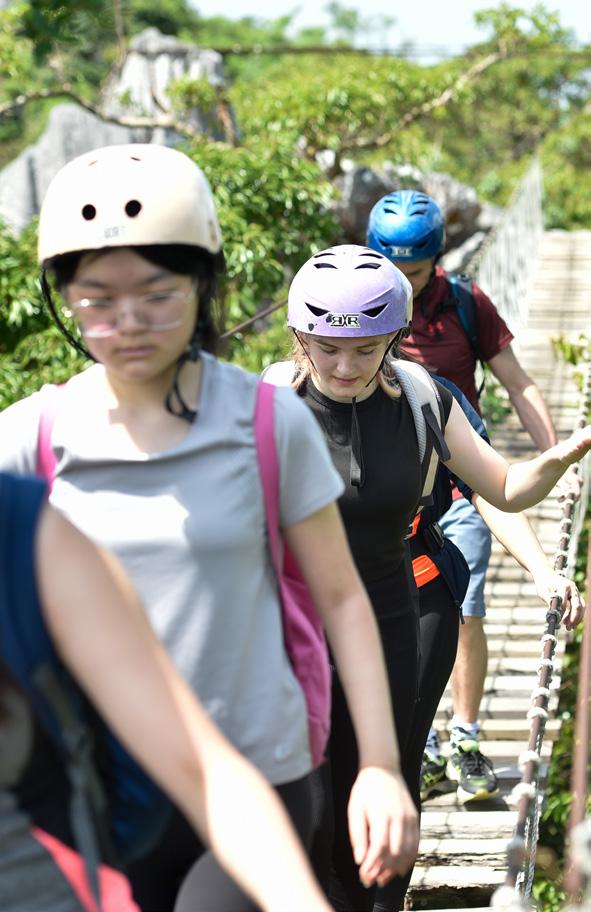
• Bali Green Camp
• Bataan Turtle Sanctuary
• Best Buddies
• BSM Cares
Key Stage 3 covers Years 7 to 9 and represents the foundation of academic life in the Senior School. During these years, students follow a bespoke, enhanced version of the British National Curriculum designed not only to help them flourish academically but also to nurture the skills, values, and perspectives that enable them to contribute meaningfully to their communities.
A strong focus is placed on building effective organisational habits, developing proactive approaches to learning, and engaging with an innovative, culturally relevant curriculum.
• Year 7 students are carefully supported through their transition into Senior School. With a strong emphasis on well-being and global citizenship, they encounter a broader range of disciplines taught by subject specialists, building the confidence to take risks in their learning and form lasting relationships.
• Year 8 deepens disciplinary knowledge while encouraging students to apply their understanding and skills across local and global contexts, continuing their growth as thoughtful global citizens.
• Year 9 marks the transition into Key Stage 4. Through self-reflection and celebration of their achievements, students begin to make important subject choices ahead of their IGCSE studies. They are guided to retain and connect prior knowledge while exploring the deeper structural patterns that underpin both academic disciplines and the wider world.
Key Stage 4 encompasses Years 10 and 11, building on the intellectual, social, and emotional development fostered in Key Stage 3. At this stage, students take greater ownership of their learning, selecting the subjects that will shape their academic pathways and preparing for future university study.
Students follow the two-year IGCSE programme, culminating in externally assessed examinations that are internationally respected. The IGCSE provides both breadth and depth, equipping students with the knowledge and skills needed to thrive in the IB Diploma Programme.
Our approach ensures that academic success is underpinned by well-being. Through the deliberate teaching of study habits, resilience, and transferable skills, students are supported to manage the challenges of adolescence and high-level study. The outstanding results achieved by our students reflect not only their hard work but also the expertise of our subject specialists, and the school’s commitment to evidence-informed practice, cognitive science, and cross-disciplinary connections.
In Years 12 and 13, students undertake the International Baccalaureate Diploma Programme (IBDP), widely regarded as the most rigorous and respected pre-university qualification worldwide.
The IB Diploma develops students with exceptional breadth and depth of knowledge while encouraging them to flourish physically, intellectually, emotionally, and ethically. The curriculum requires students to study six subject groups, ensuring both academic range and specialist expertise in three Higher Level subjects.
Alongside this, all IB Diploma students complete the Core, which develops the qualities essential for success at university and beyond:
• Theory of Knowledge (TOK) fosters critical and creative thinking about knowledge itself.
• Creativity, Activity, Service (CAS) engages students in experiences that build character, leadership, and global awareness.
• The Extended Essay (EE) requires independent academic research and sustained writing, developing skills directly relevant to higher education.
The IB Diploma is more than a qualification; it is a holistic preparation for life, shaping students into adaptable, resilient, and reflective young adults who are ready to contribute with confidence to a rapidly changing world.
• Gawad Kalinga
• Gifted Gamers
• Habitat for Humanity
• Holy Carabao Holistic Farm
• BSM Special Olympics Pilipinas
• Childhaus
• Gawad Kalinga
• Kythe
• Mount Purro Nature Camp
• One Million Lights
• Pre-loved Devices
• Red Cross Youth Council
• Siniloan Tree Planting
• Springboard Foundation
• Subic Jungle Survival
King’s College London
London School of Economics and Political Science
Loughborough University
Northumbria University
University College London
University of Birmingham
University of Edinburgh
University of Glasgow
University of Leeds
University of Manchester
University of Nottingham
University of St. Andrews
University of Warwick
USA
Barnard College
Bentley University
Carnegie Mellon University

Georgetown University
Northwestern University
The New School
University of California
Los Angeles
University of Delaware
University of Michigan
University of Pennsylvania
University of Southern California
Yale University
Canada
University of Alberta
University of British Columbia
University of Toronto
University of Waterloo
University of Winnipeg
Australia
The University of Melbourne
The University of Sydney
Hong Kong
Hong Kong Baptist University
University of Hong Kong
South Korea
Hanyang University
Yonsei University
Italy
Marist University
Netherlands
Technical University of Delft
Malaysia
Heriot-Watt University Malaysia
Philippines
Ateneo de Manila University
Singapore
Singapore University of Technology and Design
Nursery
In Nursery, the outdoors isn’t just an option — it’s an essential part of everyday learning. Each day, the children experience the joy and curiosity that comes from being in nature. They explore textures, sounds, and sights: feeling rough bark or smooth leaves, hearing birdsong or rustling branches, and observing tiny creatures that crawl or fly. These experiences help make the natural world familiar and exciting for our three-year-olds.
The Nursery students learned through indoor and outdoor activities—they planted, harvested, and cooked pechay, taking part in the full cycle of growing food. They also tasted a local fruit of the week, not only encouraging healthy eating habits but also prompting scientific observation as they compared colours, textures, and flavors.
Indoors, we intentionally limit fine motor, sensory, and malleable materials to encourage a richer experience with natural elements outdoors. Sand, water, twigs, leaves, and pebbles become tools for creativity and exploration. Even our toys — especially plastic ones — are carefully selected to promote open-ended play that supports imagination and problem-solving.
By making nature a central part of our Nursery environment, we help children connect with the world around them in meaningful, joyful ways.
Reception Students learned:
• Composting as they collected vegetable scraps from peels. We also dried some of the seeds and eventually planted them using the compost soil.
• Growing vegetables in the garden that sustained most of the cooking sessions of the year. We were able to grow tomatoes we used to preparre tomato tea, tomato salsa, tomato juice; kalabasa plant for ginataang kalabasa, sauteed kalabasa flowers, kalabasa flower fritters; and monggo plant - savoury monggo pastry.
• Discovering one of their favourite fruits, the kamias, from a tree in the garden. They learned to dry these and add them to dishes, and also made a special dish ‘Paksiw’ for our kuyas (janitors and guards). Through this practice the children begin to notice and collect seeds from their snacks and, overtime, we collected many different seeds in the hope that we never need to buy any more.
We also introduced collecting egg shells and turning them into fertilizers for the compost, plants, and food for the snails. Paper and box scraps were also added into the compost (although some we turned into paper).
Most of the dishes we cooked are also linked to GCE - showcasing Philippine dishes. The whole process created a wonderful vision of the whole food cycle, sustainability and GCE to the children in Reception.
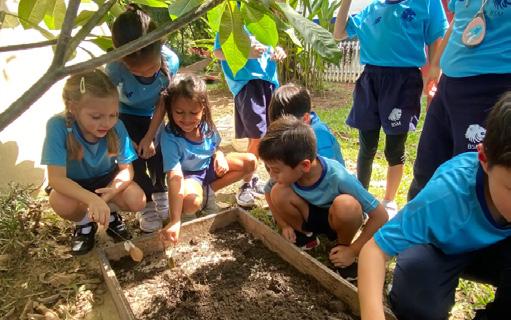
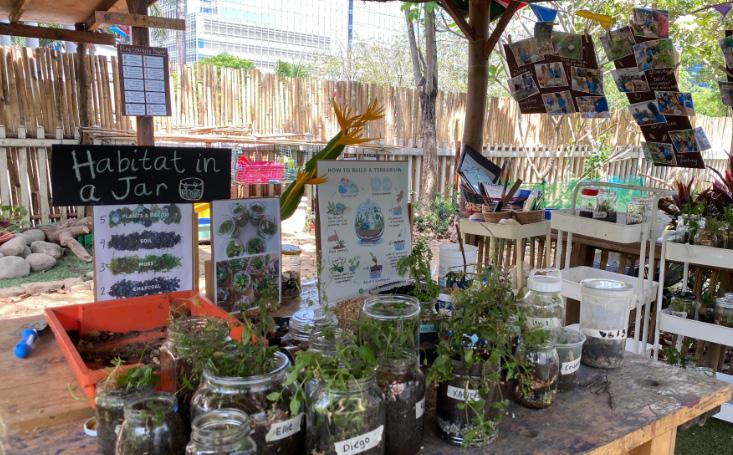
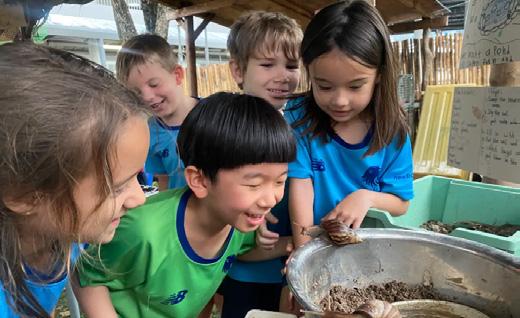

This year, Year 1 students supported their service learning partner, Tahanan Ng Pagmamahal, through meaningful engagement and consistent contributions. The students had playdates with the children from Tahanan ng Pagmamahal, where they were able to connect and build friendships in a spirit of joy and inclusion. They also helped raise funds by contributing to the annual Jumble Sale, the success of which has provided vital resources to sustain ongoing support. With the money raised, Year 1 has ensured that monthly shopping based on Tahanan’s wishlist is delivered directly to them. This system provides targeted assistance, helping meet the children’s immediate needs in a practical and meaningful way.
Alongside this, Year 1 has continued to develop their own garden, where a system of Head Gardeners has been introduced. These roles rotate weekly, giving students the responsibility for planting seeds and harvesting crops. The vegetables grown are then used in Host Nation lessons during weekly cooking sessions, allowing the students to experience the full cycle of planting, growing, and preparing food together.
Year 2 students made significant progress in their service and sustainability journey, with the highlight being the ongoing development of the Year 2 garden. What began as a simple outdoor space has steadily grown into an extension of the classrooma living, learning environment where students work together to plant, care for, and harvest crops. The students have successfully grown basil, pechay, cucumbers, and even jackfruit, learning first-hand about the processes of growing, caring for, and sustaining natural systems. The garden continues to evolve, offering opportunities for each new cohort to deepen their understanding of food production, environmental care, and the importance of nurturing living spaces.
Beyond the school grounds, students also explored broader environmental themes through a visit to Las Piñas Wetland Park. Here, they saw mangroves up close, discovering their crucial role in protecting coastlines, supporting biodiversity, and maintaining healthy ecosystems. This outdoor learning experience helped students make connections between local action and global environmental challenges, encouraging them to consider how they, too, can protect and care for the natural world.
In Year 3, our Service Learning focus has continued to focus on food security and sustainability. We continued to support the Bungkol Elementary School garden project, where students help to grow fresh produce to support the school’s feeding programme and learn first-hand about the importance of nutrition and caring for the environment. Students learned about the life cycle of plants and which crops grow successfully in the Year 3 garden. The plants they grow are chosen because they are significant to the growing conditions of the Philippines, giving children meaningful insight into how local food is produced from seed to harvest.
We have also strengthened our links with the Tondo community by visiting the food distribution centre at Better World Community Centre. Following the success of the last food drive, Year 3 students were invited by Rise Against Hunger to take part in distribution of the food items that they had collected. It allowed students to see the real impact of their efforts and to connect directly with the people they are supporting.
Through these projects, the students connect their learning in Science, Well-Being and Global Citizenship - exploring plants, nutrition, and interdependence with meaningful, real-life action. They have developed empathy, responsibility, and an understanding of how communities can work together to make a positive difference in the Philippines.
Year 4
Year 4 students extended their on-site service learning project, strengthening alignment with UNSDG 15.3: combating land degradation and regenerating soil. This initiative reflects the school’s Global Citizenship commitment, where students are encouraged to think globally but act locally, embedding sustainability within their immediate school community. Students designed and managed a structured composting system, repurposing food scraps and coffee grounds around school into healthy soil. This not only reduced waste but also fostered community ownership and provided a living demonstration of circular systems. A significant milestone was the banana circle— planted two years ago—now bearing fruit, symbolising the long-term impact of regenerative outdoor learning practice and the contrast between industrial timeframes and nature’s slower, resilient cycles.
Embedding cultural relevance, students also grew cassava, string beans, and lemongrass—crops that are integral to Filipino food culture and community resilience. These hardy plants, often relied upon for everyday meals, served as a tangible link between sustainability, food security, and local traditions. In doing so, Year 4 not only explored permaculture principles but also honoured the host culture, making the project both globally informed and locally grounded.
This initiative is deliberately designed as a continuing project, not a one-off. Each new Year 4 cohort will inherit and extend the work of previous students, adding new layers of learning and ecological impact, themselves growing into environmental stewards of the future. Over time, the composting system and food forest will serve as a living laboratory for sustainability education, building resilience and deepening student understanding year on year. In this way, Year 4’s project is both a foundation and a legacy—embedding long-term service learning within the heart of the school community.
Year 5 continues to collaborate with Waves for Water, a charitable organisation dedicated to providing clean water to families across the Philippines. As part of their unit on Clean Water and Sanitation, Year 5 students have been exploring the profound impact that contaminated water has on public health, women’s empowerment, and children’s education.
Following a visit from Waves for Water, during which the organisation presented its initiatives in the Philippines, the students designed and hosted a series of games and activities for other year groups to enjoy during lunchtime. These game designs and construction are a transfer task from our PEEC unit on creativity. Through these efforts, they successfully raised over PHP 300,000.
The funds were used to purchase numerous water filters, which will directly benefit hundreds of families living in remote, mountainous communities. These filters will significantly reduce waterborne illnesses, enabling children to attend school more regularly and allowing adults to maintain consistent employment.
Later in the year, we receive the impact assessment from Waves for Water so the children can see the impact of their fundraising.
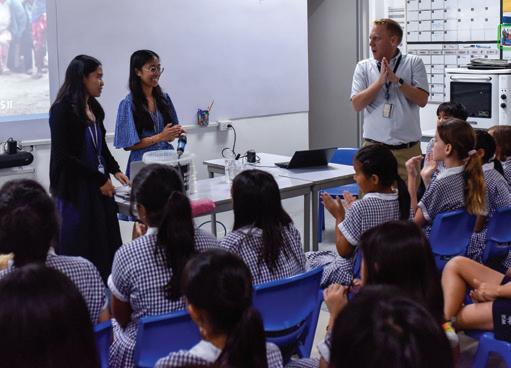
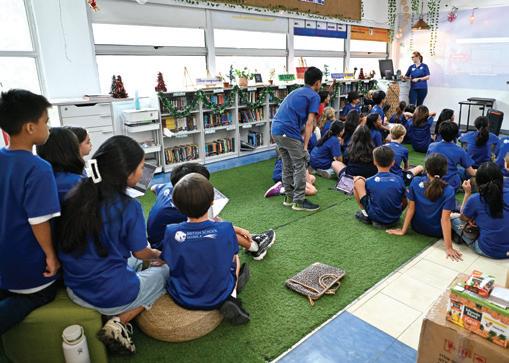
We welcomed 70 children from the Tondo area at BSM, giving them a sense of belonging within our community. By providing blue t-shirts, we enabled them to blend comfortably with our students, symbolising inclusion and unity. Through collaborative games, with the guests, the children recognised each other’s strengths, reinforcing mutual respect. These activities built not only relationships but also an understanding of the importance of serving others with dignity and care.
Our clothing and art material drives reflected our commitment to sustainable service, ensuring donations were meaningful and responsibly distributed to families who needed them most. Preparing shoeboxes filled with carefully chosen gifts demonstrated honesty and accountability in giving, avoiding waste and ensuring every item had purpose. By travelling to Tondo, the KS2 teams saw first-hand the long-term impact of our contributions, showing integrity in both action and partnership. This visit reinforced our responsibility to create service opportunities that endure beyond one-off events.
We shared food, games, and laughter, creating an atmosphere of joy and welcome that transcended backgrounds. The penpal programme nurtured lasting friendships, sustained by ongoing encouragement and care. By offering access to the climbing wall and taking the children on a tour of BGC, we provided opportunities to explore new horizons—acts of kindness that also reflected our commitment to sharing resources sustainably and responsibly. These experiences demonstrated how kindness, when linked with service, can open doors to growth and new possibilities for all.
S&S has been embedded in Year 7 curriculum, with students using subject knowledge to take purposeful action and reflect on their role in creating a fairer, more sustainable world. In Maths, students used data to advocate for endangered species and have modelled budgets that explore equity and dignity across diverse income levels. Through design thinking and spatial reasoning, they have considered how families might thrive within compact, community-built homes. In PSHE, students explored how bias affects relationships and have learned to navigate wants and needs with empathy and balance. Visual Arts subjects enabled students to express identity and belonging while building respect for difference and community voice. In Technology, students designed and modelled 3D Sustainable Homes using the Delightex virtual 3D modelling platform. They began by researching sustainable homes, exploring features such as renewable energy, water conservation, and eco-friendly building materials, before incorporating these into their own creative designs. Through this process, they combined technical skills with environmental awareness, imagining how thoughtful design can contribute to a regenerative future.
In pastoral time students once again have connected with Chosen Children Village - interviewing them and finding out their needs. They made a visit to the foundation and formed bonds with the staff and residents learning about their lives, successes and challenges. They also invited them to join us here on site for Guy Fawkes Night.

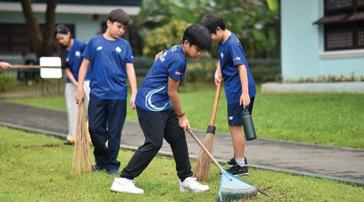
In Year 8, students have deepened their understanding of sustainability and social justice through a cross-connected curriculum grounded in real-world application. Building on their foundational learning from Year 7, various subjects have worked in concert to support sustainable design thinking and ethical innovation. Students have explored the challenges of urban poverty and climate resilience by designing model eco-homes that respond to real-world constraints. In English, they have examined the ethics of power, survival, and responsibility through dystopian literature, while in Humanities, they have investigated how trade, aid, and entrepreneurship intersect with equity and environmental impact. This integrated approach has enabled learners to apply their knowledge in support of community partners like Gawad Kalinga (GK), developing both empathy and agency as young changemakers.
The pastoral team took the students to GK in Taguig and they explored the challenges and strengths of the community as well as playing games and having deep conversations with community members to get to know them and their lives better.
Year 9 students have engaged critically with sustainability and social justice through inquiry-rich, interdisciplinary learning. In Technology, they have designed and pitched BSM-branded merchandise using digital tools, while evaluating the environmental and ethical impact of materials, packaging, and production. In Science, students have prepared for a community-facing science fair where they have investigated real-world problems — from climate change to public health — asking how scientific innovation can drive regenerative solutions. In Humanities, they have explored the importance of community voice in sustainable development, recognising that those most affected by poverty, displacement, or disaster hold essential expertise. Through place-based case studies, including informal settlements in Manila, students have applied systems thinking to imagine dignified, community-led responses to urban challenges. These experiences have helped cultivate empathy, critical analysis, and the belief that ethical design and scientific thinking can be forces for social transformation.
In pastoral, students connected with the Silver Heights Community and also visited La Mesa Nature Reserve. They forged connections with the community having taken a virtual pre-visit. They used this to create and connect with the concept of an Ikigai, which they took to the community in Silver Heights. At La Mesa, students carried out a bioblitz using a variety of scientific and geographical techniques learning the skill sets required and the challenges faced when gathering data in the real world.
Fundraising
• S&S ASA stalls across the year during events like Fun Run, International Evening, The Great British Splash, etc.
• Haunted Maze led by One Million LightsPHP 31,670
• Change4Change - PHP 146,220


Year 10 and 11
Year 10 students have taken on the urgent challenge of plastic pollution through a new interdisciplinary and pastoral focus on environmental justice. After learning about the complexities of waste systems and circular economy thinking, students heard directly from UN Environment Ambassador and CORA founder, Antoinette Taus. They have since worked alongside her organisation at the Las Piñas-Parañaque Wetlands Park, conducting a shoreline waste audit that contributes to a growing citizen science dataset. Their findings have supported efforts to influence policy and raise awareness about the interconnected systems driving pollution in Metro Manila’s coastal ecosystems. Through this hands-on experience, students have developed a deeper understanding of how youth voice, scientific data, and systems-level thinking can contribute meaningfully to climate action and regeneration.
We are in the process of planning a new S&S Trip for Y11 to Tahanang Walang Hagdan
Years 7 to 10 students took part in MAD Week, engaging in 14 distinct experiences spread across 11 diverse locations. Some groups remained on campus, exploring issues such as sustainable fashion and circular waste systems. Some ventured out
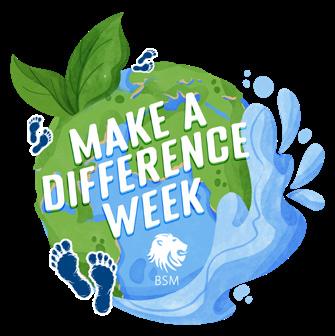
on day trips to local communities, nature reserves, and a school supporting persons with disabilities, where they contributed to a wide range of meaningful initiatives. Nearly half of our students joined residential experiences farther afield, where they worked alongside indigenous communities, engaged in organic farming, supported inclusive livelihood projects, and conducted biodiversity research through forest and river bio blitzes.
One highlight is the return of Docathon, now in its second year. Students were challenged to document the voices and stories of the people and environments they encountered, producing short documentaries rooted in empathy and place-based inquiry. The week culminated in a vibrant Docathon Film Festival, judged by an esteemed panel of filmmakers and environmental advocates from the Philippines and beyond. Hosted by our Service & Sustainability Student Leadership Team, the event featured interviews in partnership with Winston Magazine — with the most important guests being our partner communities themselves, including a special performance by the Upskills Choir.
• Las Piñas-Parañaque Wetland Park - new equipment for monitoring their wildlife
• Upskills+ Foundation Community Centre - new roof
• Roots4Change - mangrove health monitoring
• Red Cross Philippines - supporting communities affected by fires
• Operation Smile - operations for a number of young people with cleft pallets
• One Million Lights - new solar lights for communities without electricity
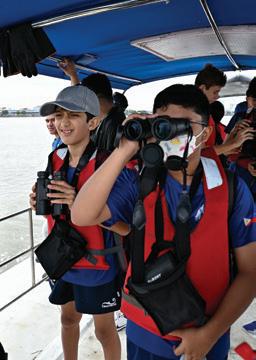
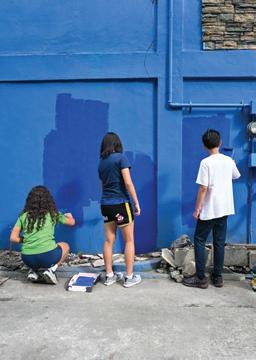
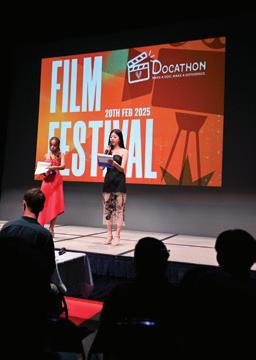



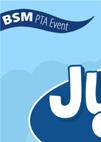




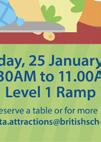

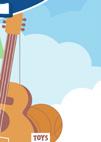

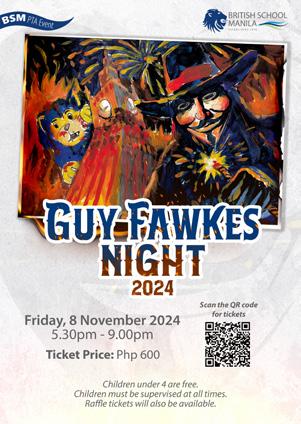

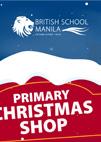

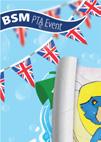
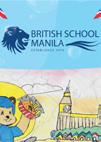
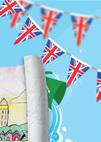
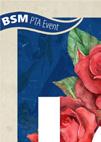

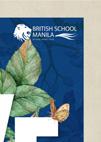

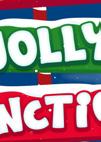

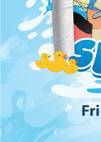



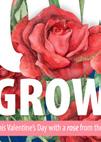


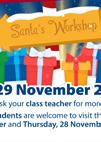


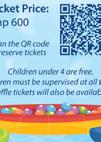
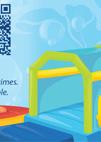
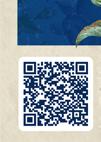

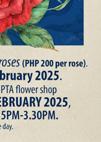
This school year 2024-2025 the PTA has been busy organising and running several events, aimed at bringing the BSM community closer together.
In September 2024, the PTA AGM introduced its new committee consisting of 10 parent volunteers and 2 teacher representatives. Throughout the year they worked together to host several events. Highlights included everyone’s favourite Guy Fawkes Night, full of fun student performances and traditional fireworks, as well as the festive Primary Christmas Shop. Other PTA hosted events included the annual traditional Jumble Sale and the Valentine’s Day flower shop
The PTA ended the school year with a new themed event - the Great British Splash. This was an evening of water-based games and activities, plus a celebration of all things British. It was the perfect way to wrap up the year and celebrate the arrival of the summer break.

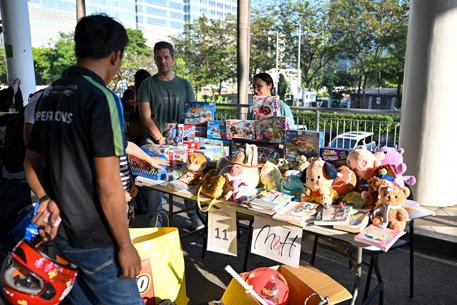
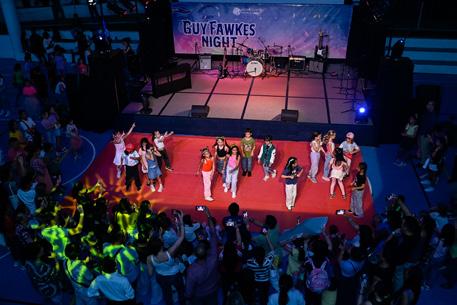
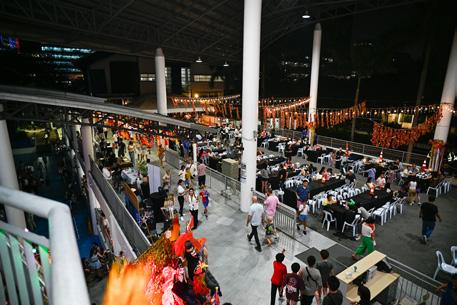
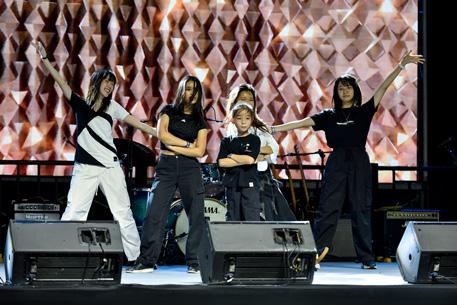
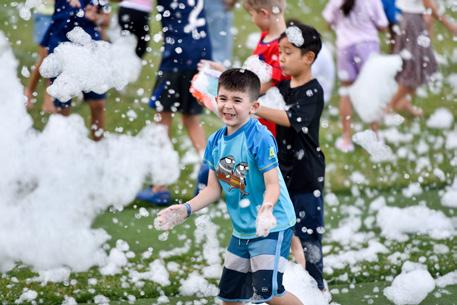


The level of participation and involvement of the BSM community in the events throughout the year was extraordinary, and evidence of the importance of these events in bringing moments of joy to the community.
In addition, the PTA also supported and contributed to several other school activities. This included running a photo booth at the BSM Fun Run, funding a Dragon Dance for Chinese New Year celebrations and running the bar at International Evening. The PTA also hosted pre-concert gatherings at the Christmas concert and End of Year concert. Contributions were also made to the IB graduation and Senior Prom, and annual BSM staff parties.
The PTA’s main financial contribution to the school for the year will be close to 1 Million Pesos. It will be used to fund projects that support the school in the areas of sustainability and weather / temperature control. The PTA is proud to be able to continue to contribute to BSM’s efforts to make the school a healthy and enjoyable space for its students and community as a whole.
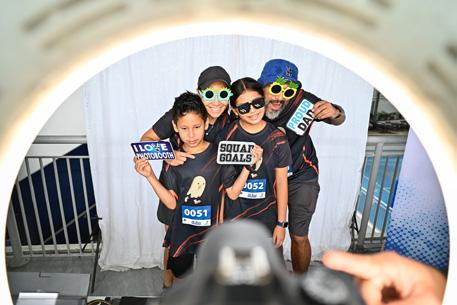

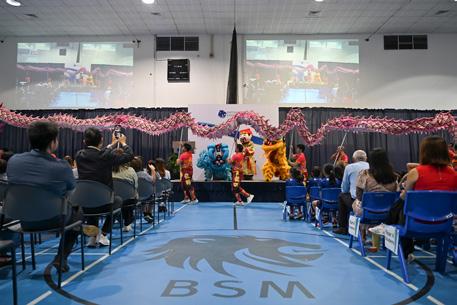
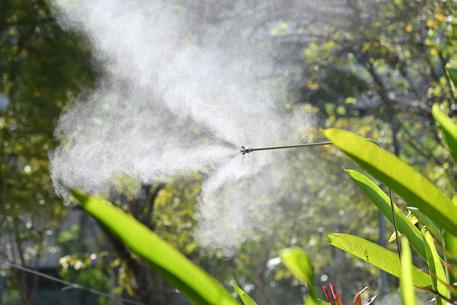
As the scholarship programme enters its 20th year, it remains committed and passionate in taking an all-inclusive approach to supporting underprivileged but deserving students of the Department of Education Schools Division of Taguig City and Pateros. It creates an environment that nurtures both the academic and personal growth of the scholars. It provides mentorship, opportunities for personal growth, and a network of like-minded individuals for their holistic development. The program does not just focus solely on academics, but more importantly, who each scholar is as individuals. It is an invitation to challenge themselves and to push beyond their limits - to discover their full potential as future movers of this country.
A total of 55 students have benefitted from the scholarship programme, supporting them in a wide range of subjects such as aircraft maintenance technology, marine transportation, medical science, engineering and accountancy to name a few. Currently, we have 25 students enrolled in the programme.

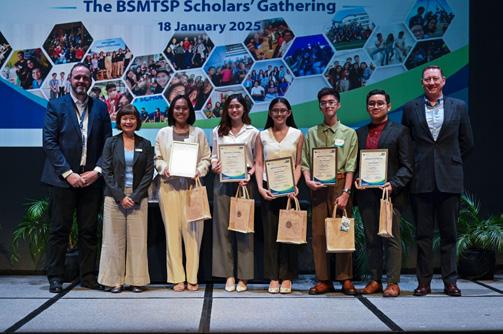

The highlight was the annual scholars’ gathering where the committee and its scholars reminisced and highlighted the evolution of BSMTSP, from its conception into how it is now - the developments it underwent and the transformations each stakeholder experienced throughout the two decades. They have been a solid testament to the passion, dedication and resilience of every member of the scholarship programme.
The event spotlighted the scholars’ stories of challenges and triumphs, as grant recipients and as instruments of change. Their experiences served as compasses of the programme - how the programme has impacted their lives and the different challenges they faced and how they were able to overcome them.

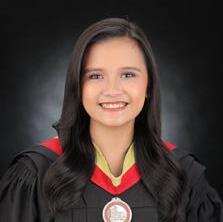
Batch 10
Rochelle Abala
BS in Civil Engineering
MAPUA University
Cum Laude
In our efforts to support our scholars in their academic journey, the committee has organised free coaching sessions with one of our counsellors. The committee would like to thank Mr Gwyn Davies for generously volunteering his time and expertise.
From the approved budget for SY 2024-2025 of PHP 4,086,412.00, total expenses amounted to PHP 4,073,207.87.
Budget 4,073,207.87
4,086,412.00
2024-2025
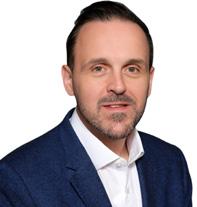

The scholarship programme extends its deepest gratitude to Mr. William Madden, for his dedication and for his support in developing the programme.
The committee welcomed its new Service & Sustainability Governor, Mr. Trevor Morrish-Hale. The committee is looking forward to his vision and plans for the scholarship programme.
We are proud to welcome the newest members of the BSM community, the Batch 15 scholars. All of whom have impressed the evaluators and committee during the screening process. They enter SY 2025-2026 as Grade 12 students.
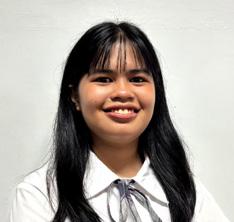
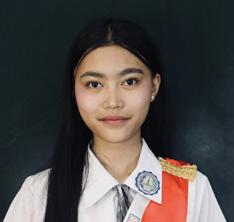

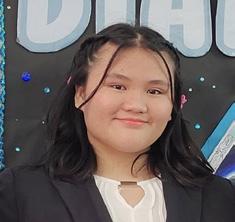
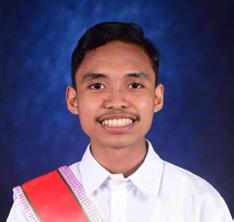
The 2024–2025 school year was another exciting chapter for our growing alumni community, with memorable events that strengthened connections both locally and around the world.
In January, we began the year with our much-loved Founders’ Day Assembly, a celebration of BSM’s legacy that brought alumni, students, staff, and parents together to honour our past while looking ahead to the future. The event marked another milestone in our school’s history, reflecting the enduring spirit and sense of belonging that defines the BSM community.
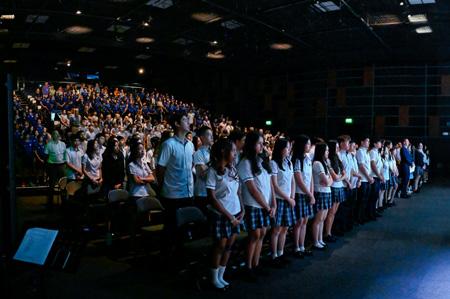
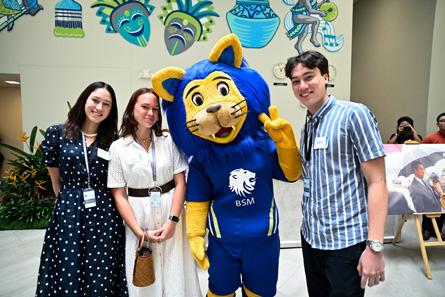
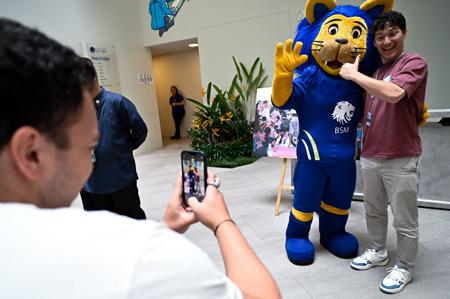
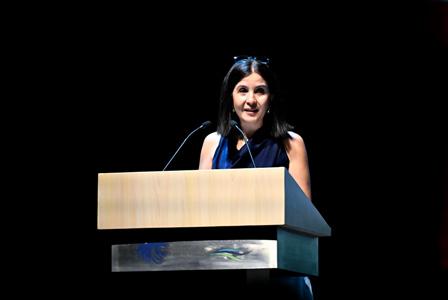
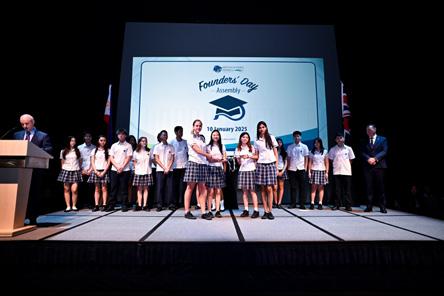


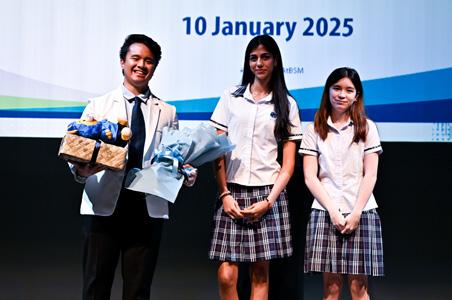
March saw the return of BSM Alumni Connect in Manila, a highlight of the year for many. The event, hosted annually at the Manila Polo Club, gathered alumni from across generations, BSM Taguig Scholars, and business leaders from diverse industries. The evening provided a warm and welcoming space for reminiscing, networking, exchanging ideas, and celebrating the shared experiences that unite our community.
In May, Alumni Connect extended to London for the second consecutive year, coinciding with the Council of British International Schools (COBIS) Annual Conference. Head of School Martin van der Linde hosted the gathering, offering our UK-based alumni the chance to reconnect with BSM and each other, while celebrating the school’s growing global reach.
As the school year drew to a close in June, we reflected on the many ways our alumni network had come together across cities, professions, and generations. Each event builds our alumni community, and we look forward to building on this momentum in the years ahead.
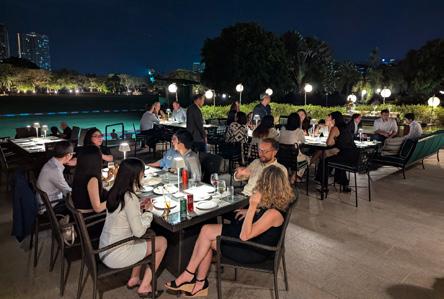
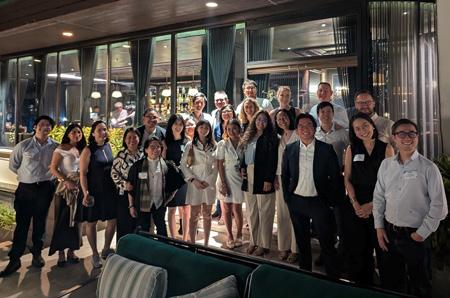

Each year we seek to share stories about our alumni and where their lives have taken them after their time at BSM. This year, we were able to sit in with two #BSMAlumni:

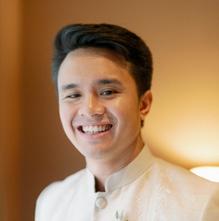
Class of 2009
Robby Sylianteng
He is currently the Managing Director of the First United Building - the centre of art and experimental retail in Old Manila. When asked how the school helped him with the career path he is in now, Robby simply said, “My firm grounding in the humanities, especially in History, stressed to me the role that any individual could play in a larger context. There’s no greater call to action than knowing that you are actively taking part in future histories with every day that you live.”
Class of 2013
Dr Jake Batuhan
11 years after completing his IB studies at BSM, Dr Jake Batuhan is now a medical practitioner and is currently applying for residency training in the United States. Looking back at the best parts of his time at BSM, he recalls having teachers as his greatest mentors who taught him humility and critical thinking.
As part of the first phase of our plans to make yearbooks digitally available to our alumni community, we worked with the Filipinas Heritage Library to have the first batch of BSM yearbooks scanned. Digitising these archives not only preserves them for future generations, but will also make it easier for alumni to revisit memories and connect with the school’s rich history and each other.
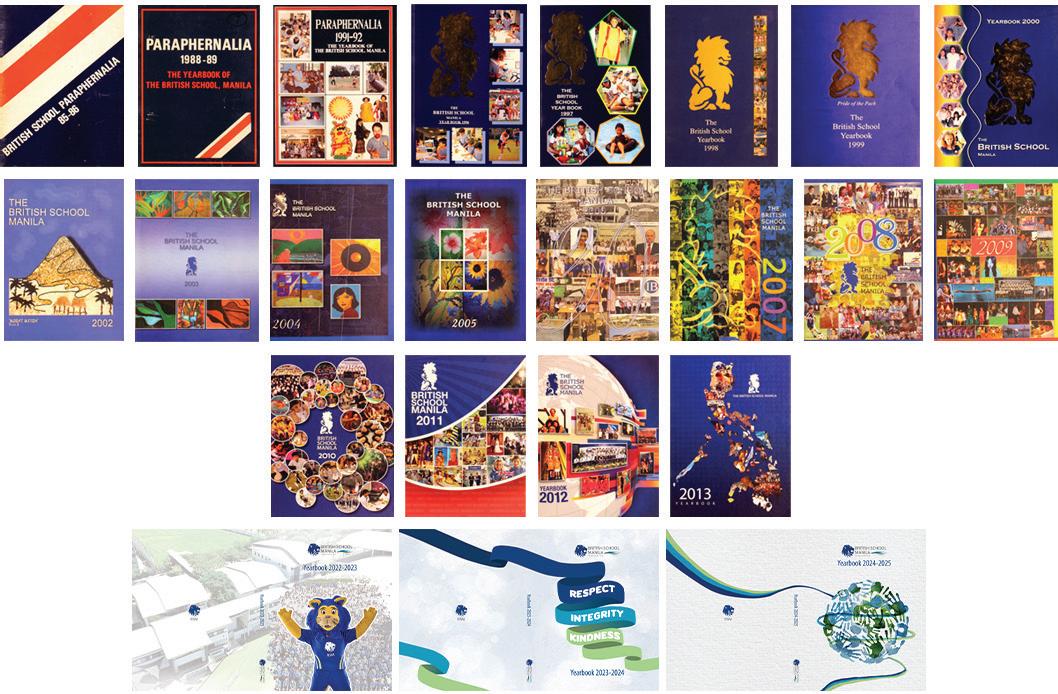
BSM successfully hosted local and international events this year. The feedback received from delegates were encouraging and a true testament to passion for excellence and the wonderful collaboration between BSM teams.
International
• 12-14 September - FOBISIA Heads of PE Conference
• 14 September - Manila World University Fair Reception for University Reps & Counselors
Local
• 23 November - Education Outreach Teachers’ Conference (BSM/DepEd Taguig Pateros partnership)
• 23-25 January - International Schools Activities Conference



Optimising school events is a continuous process and one that needs constant refinement. Experience, feedback, and suggestions as well as observing local and global best practices are pivotal to planning school events. This year, we made conscious efforts in improving our sustainability and inclusion initiatives.
We reflected on our practices to determine where we are, where we are headed and what we need to do to support the school’s sustainability advocacies. Evident in BSM events is our continued efforts to reuse, reduce, and recycle resources.
Some of our initiatives are listed below:
The BSM Jeepney continues to make an appearance and bring joy across the school for many years now.
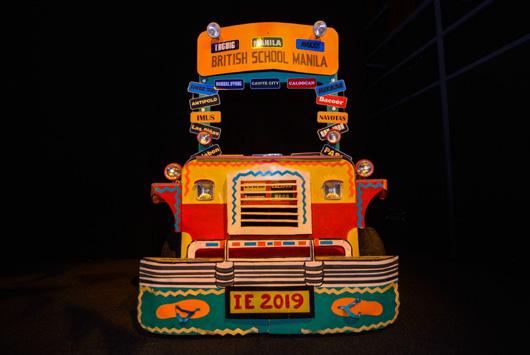
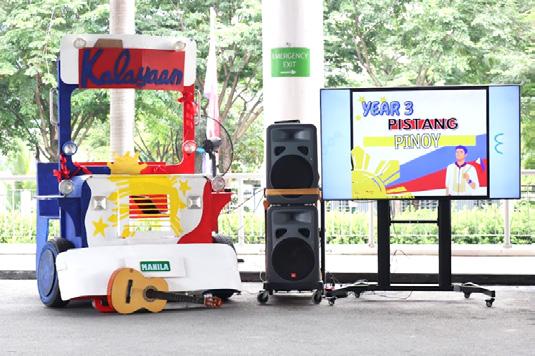
We repurposed boxes from deliveries and transformed them into event backdrops and decors. The most notable this year is the BIG BSM letters created from one of our house competitions.

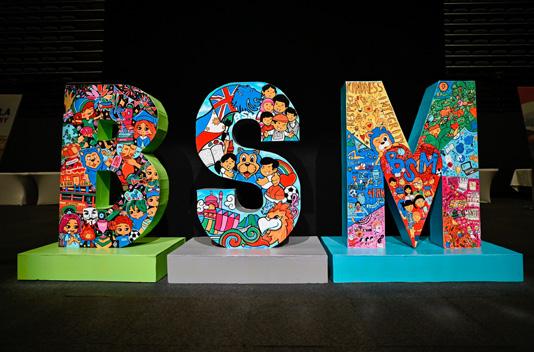
events.
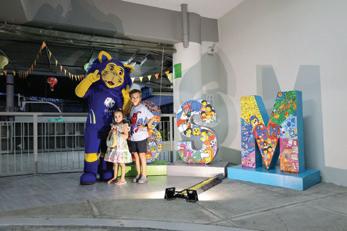
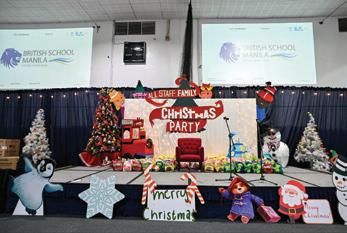

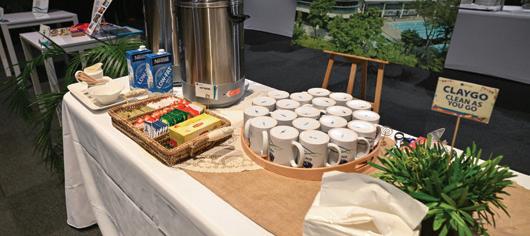
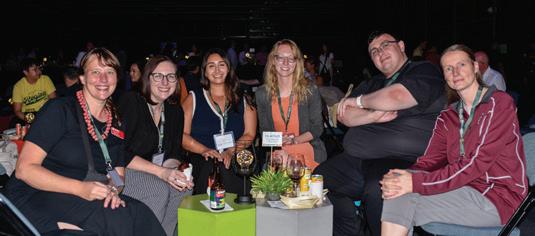
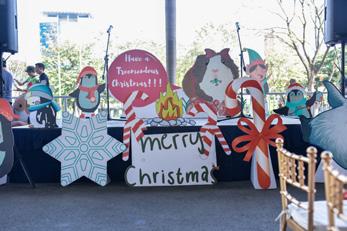
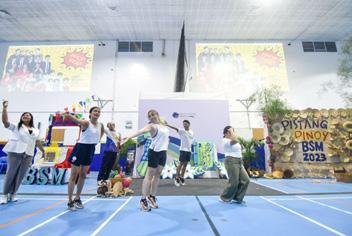

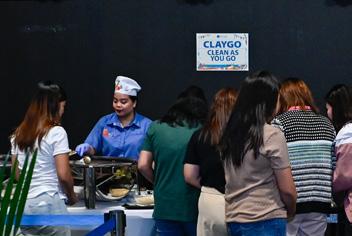
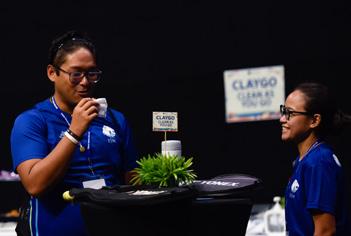

We also reviewed our efforts on inclusion to ensure we are holistic in our approach and application. For example, our food offerings in events have vegetarian and plant-based options as common practice; Whole school activities were planned and implemented with the intention of providing equal opportunities as well as careful consideration of multi-cultural perspectives.
As a school, we will continue our efforts towards sustainability and inclusion and trust that our persistent and consistent small amounts of progress will be part of a transformative change to our world in the years ahead.
